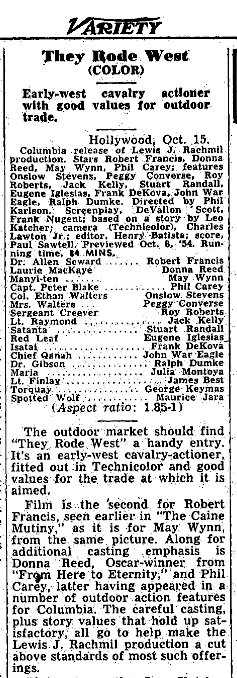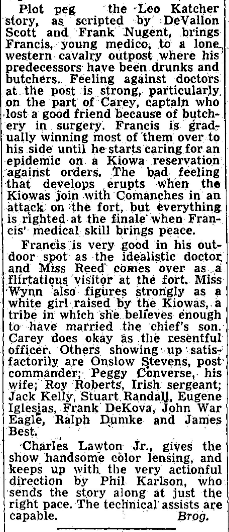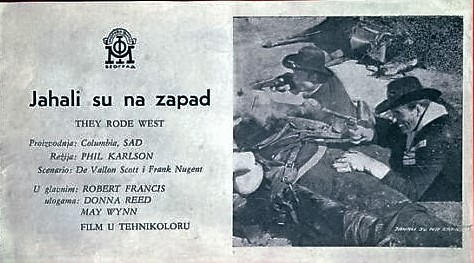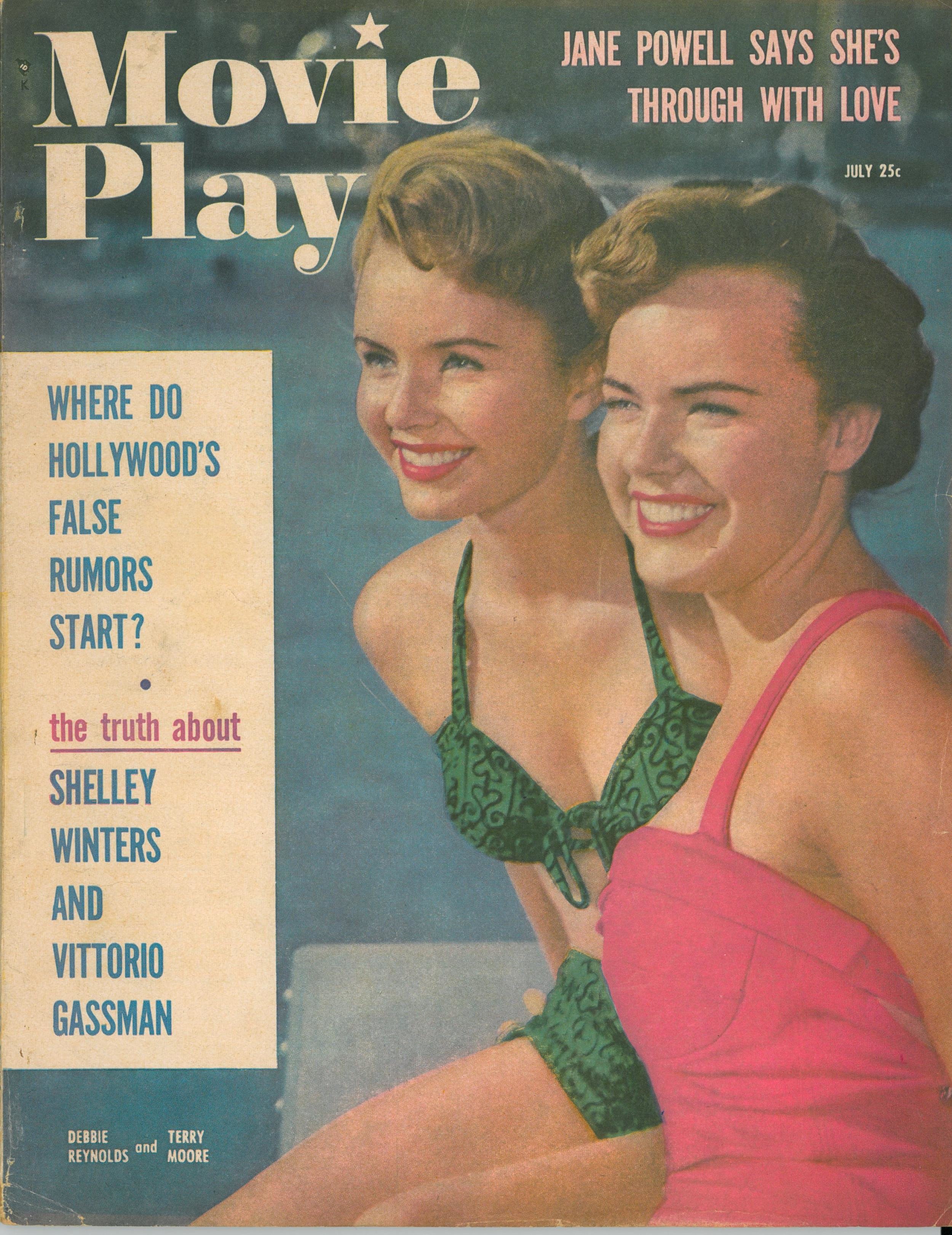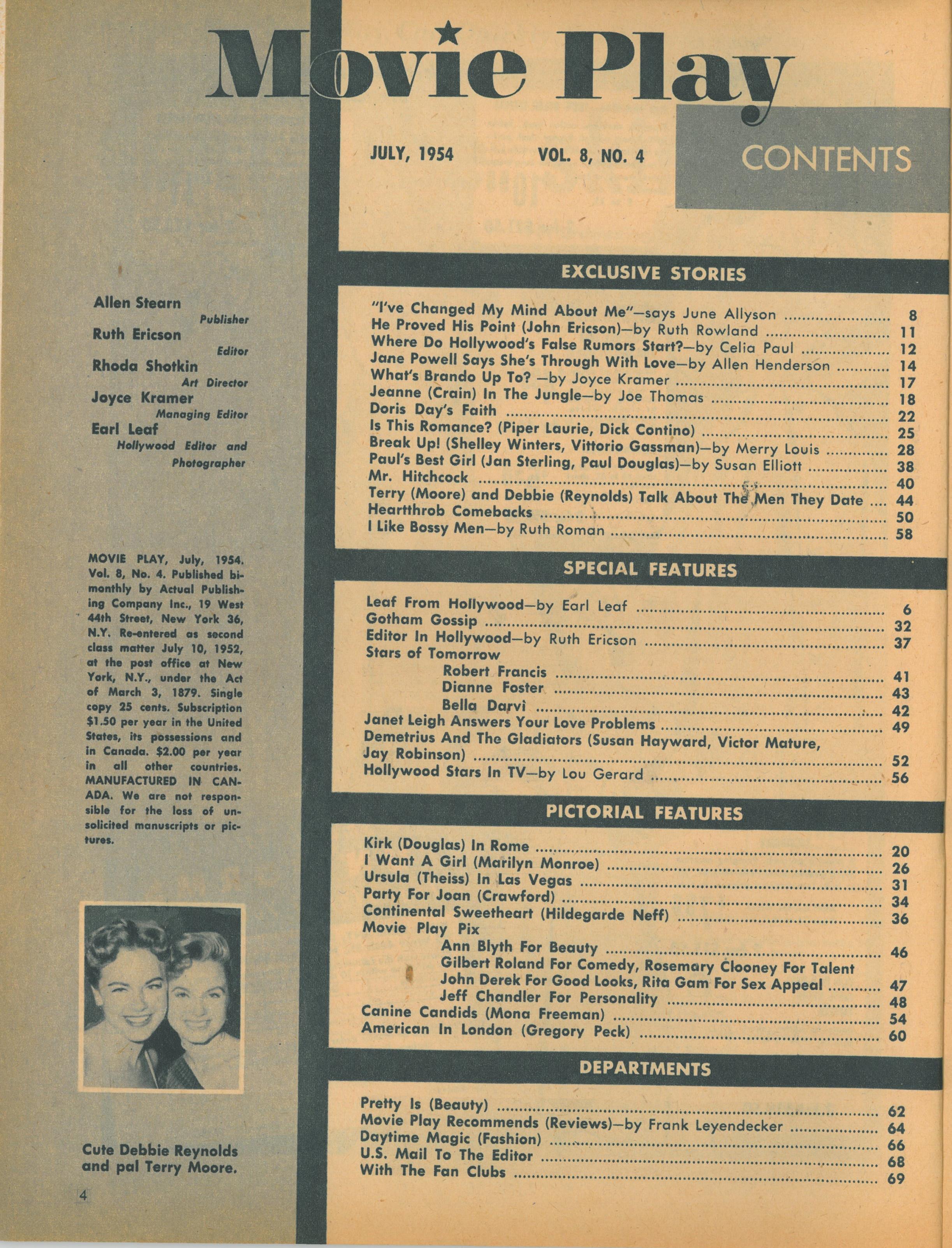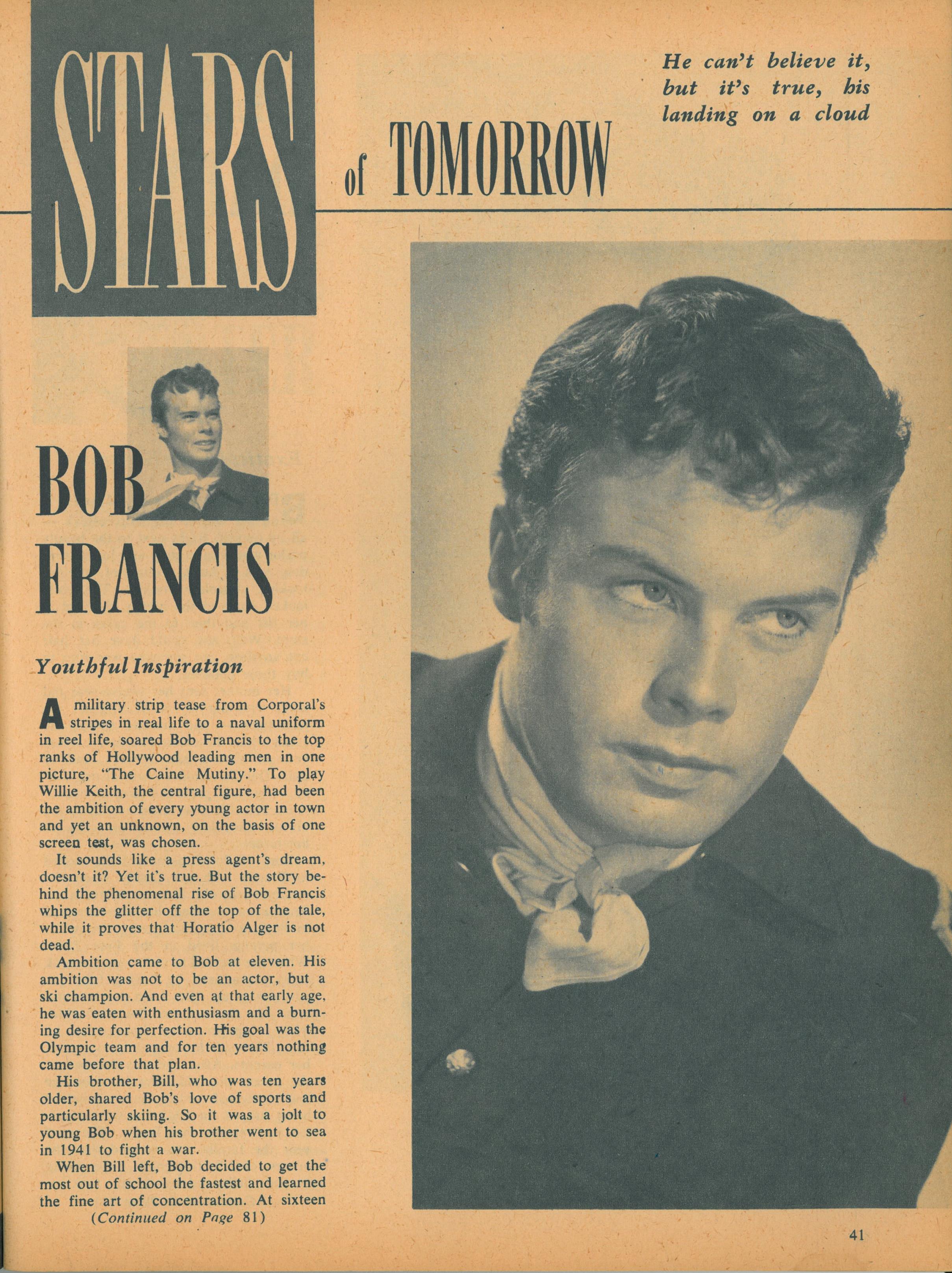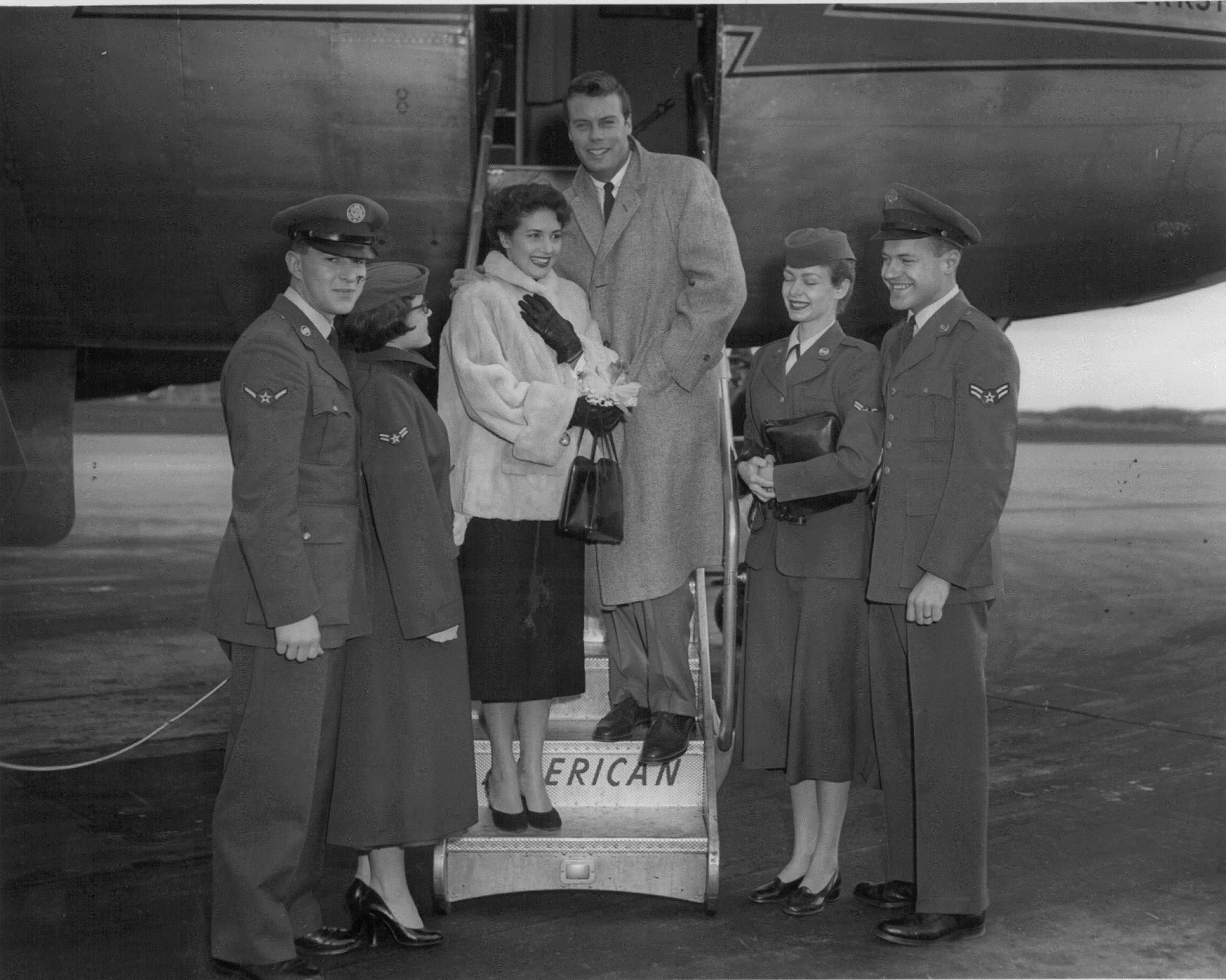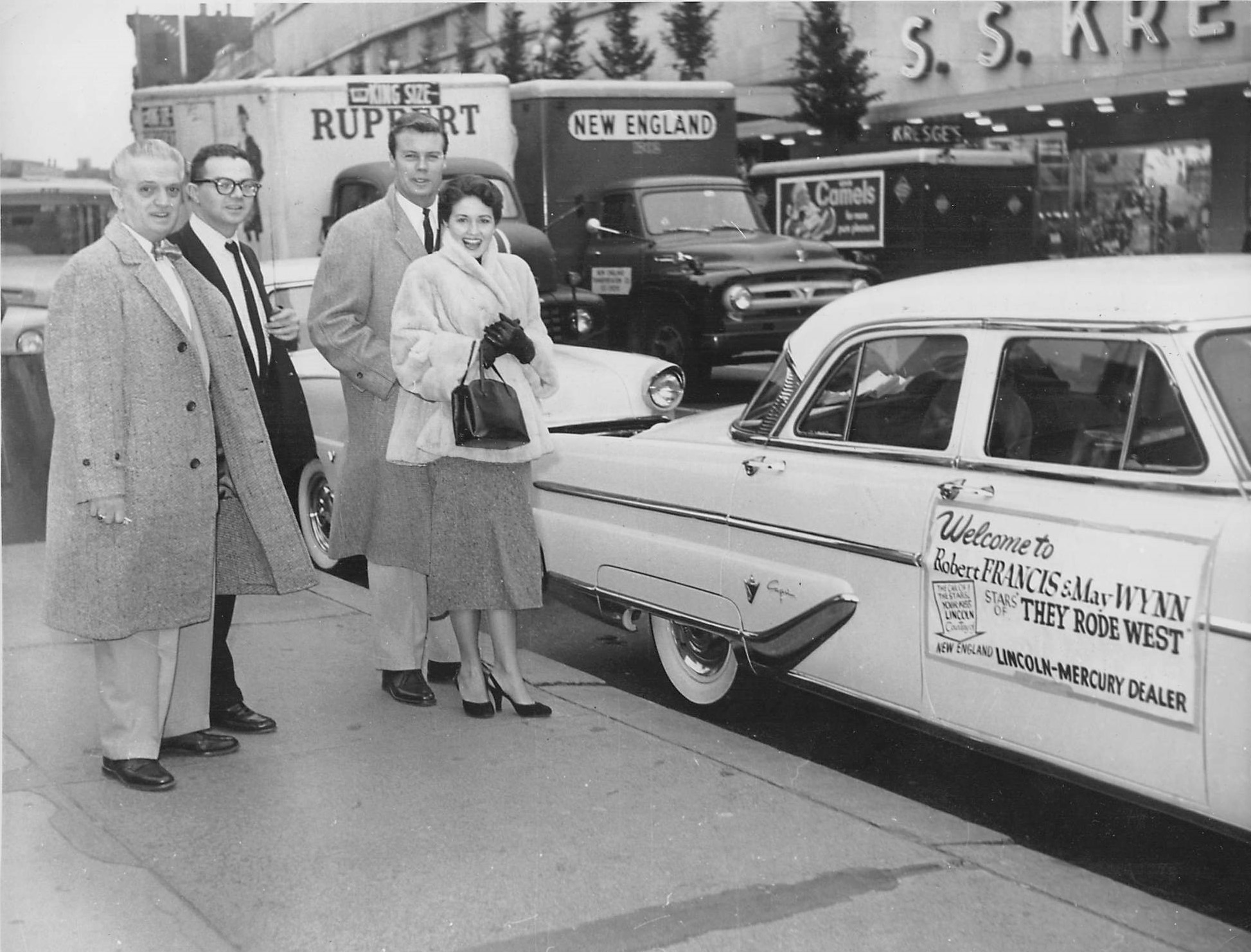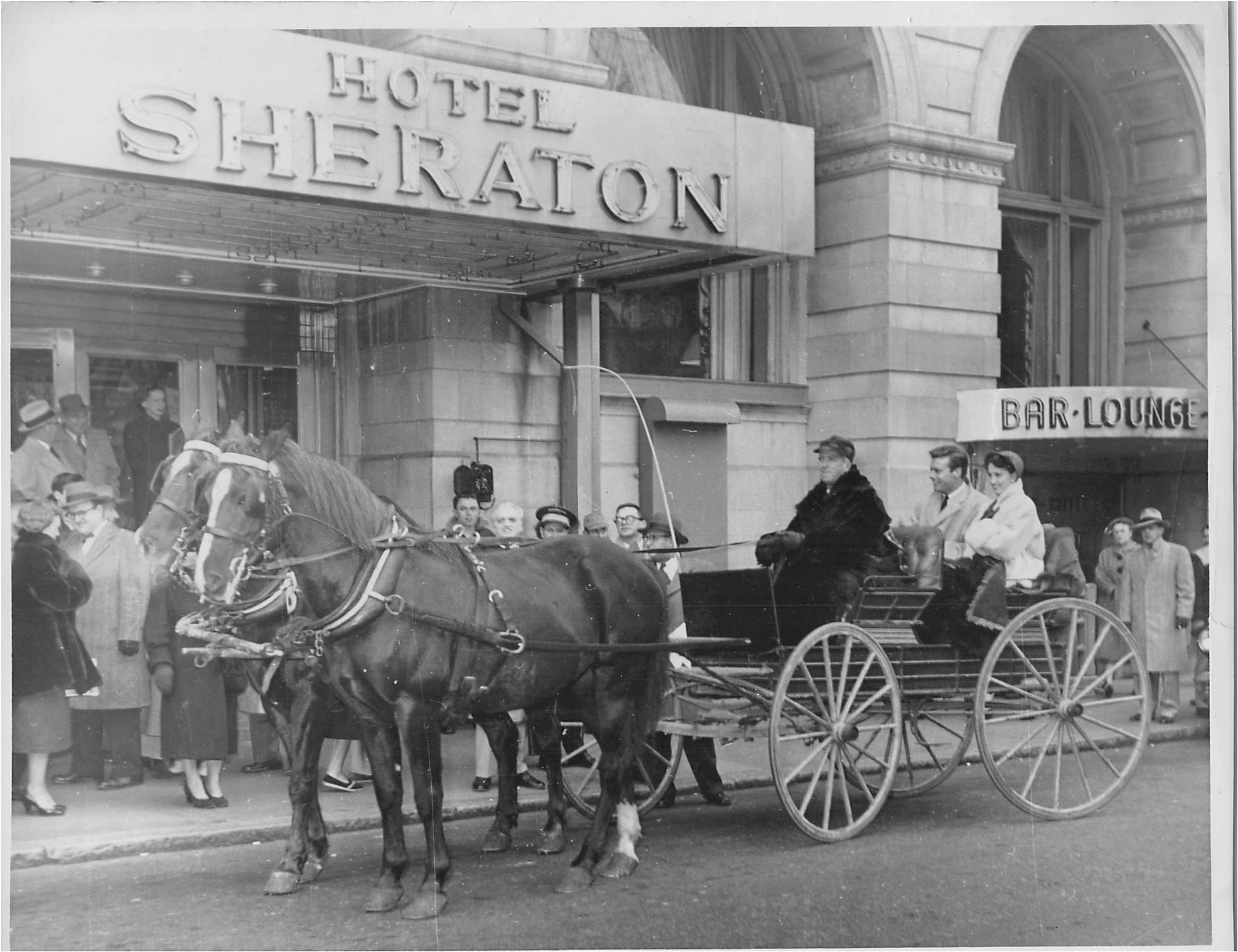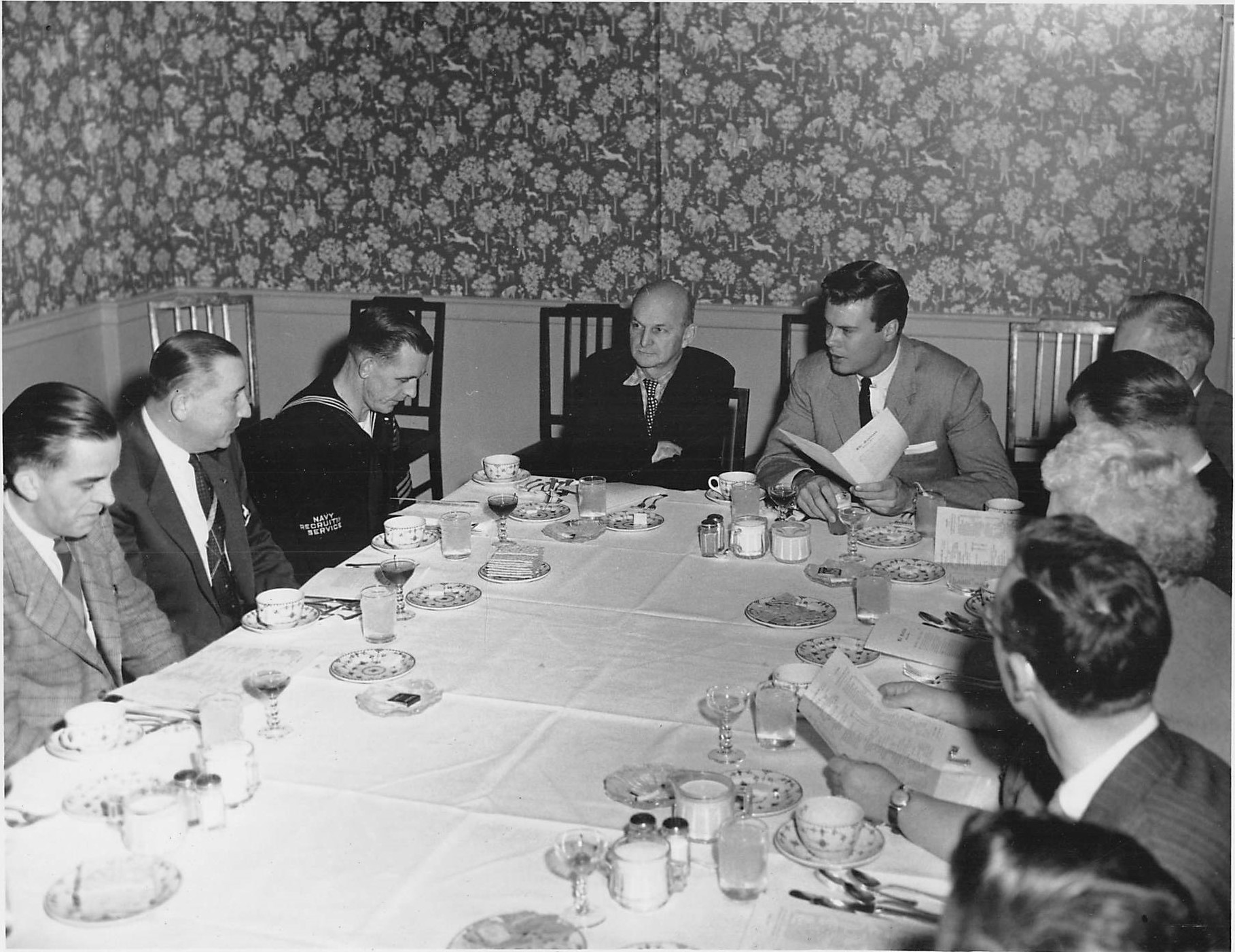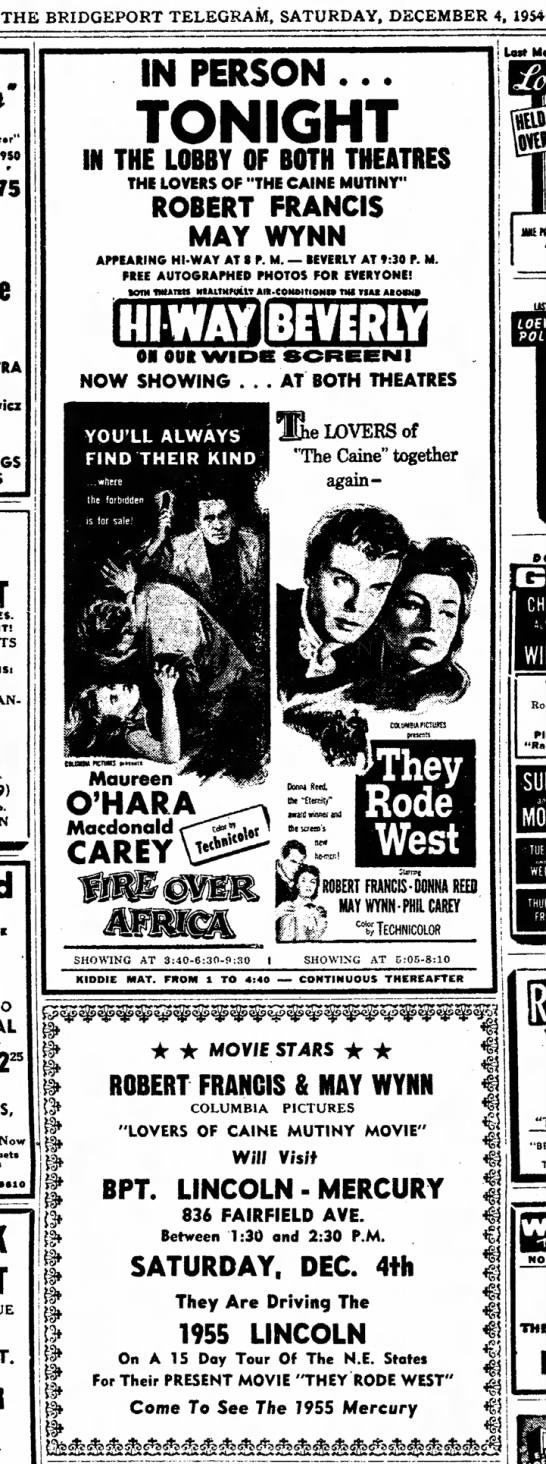They Rode West (aka The Wood Hawk and White Feather) (1954) (Columbia Pictures) This film is not available on DVD, but bootleg copies may be available.
Production Dates: Nov. 17, 1953-Dec. 7, 1953. Los Angeles opening: Nov. 10, 1954. Locations: (Interiors) Columbia Pictures, Hollywood, Calif.; (Exteriors) Ray Corrigan Ranch, Simi Valley, California https://en.wikipedia.org/wiki/Corriganville_Movie_Ranch; http://movielocationsplus.com/corrigan/ftapache.htm; Burro Flats, Simi Hills, Calif.; Iverson Ranch, 1 Iverson Lane, Chatsworth, Los Angeles, Calif.
Release Date: Nov. 1954
http://www.tcm.com/tcmdb/title/4271/They-Rode-West/ provides Overview: Full Credits, Full Synopsis, Notes, http://www.tcm.com/tcmdb/title/4271/They-Rode-West/notes.html Screenplay Info, Original Print Info, Genre, Key Words, User Reviews, Other Reviews, Articles (Money, Awards), http://www.tcm.com/tcmdb/title/4271/They-Rode-West/articles.html Quotes, Trivia, Home Video Reviews, Miscellaneous Notes, Alternate Versions, Theatrical Aspect Ratio, Video, Fan Sites
Credits: Lewis J. Rachmil, Producer; Phil Karlson, Director; Charles Lawton, Jr., Director of Photography; DeVallon Scott and Frank S. Nugent based on a story by Leo Kacher, Screenwriter…. http://www.tcm.com/tcmdb/title/4271/They-Rode-West/full-credits.html
Cast: Robert Francis, Dr. Allen Steward; Donna Reed, Laurie MacKaye; May Wynn, Manyi-ten; Phil Carey, Captain Peter Blake; Jack Kelly, Lt. Raymond…. http://www.tcm.com/tcmdb/title/4271/They-Rode-West/full-credits.html
Full Synopsis: In removing a Comanche arrow from an officer's leg, Fort McCullough's drunken Dr. Gibson severs his patient's femoral artery. Capt. Peter Blake (Phil Carey) watches the young man die and then attacks the doctor, calling him a "murdering butcher." Later, Col. Ethan Walters, commander of the post, complains in a letter to the U.S. Surgeon General that the last three medical officers assigned to the fort have been alcoholic incompetents. Some time later, a train arrives from the East, carrying the colonel's wife, Martha Walters, her pretty and flirtatious niece, Laurie MacKaye (Donna Reed), and the fort's new surgeon, Dr. Allen Seward (Robert Francis)….http://www.tcm.com/tcmdb/title/4271/They-Rode-West/full-synopsis.html
Notes: They Rode West is noteworthy as one of several Westerns during the 1950s which attempted to offer a more complex representation of Native Americans. Such films in fact date back to the silent era, but Delmer Daves’ Broken Arrow (1950) in particular revitalized that effort. While West still constructs an opposition between the warlike Comanche and the peaceful Kiowa, the main thrust of Leo Katcher’s story and Frank S. Nugent’s and DeVallon Scott’s screenplay is the juxtaposition of the compassion and the need for mutual dialogue represented by Dr. Seward (Francis) and the mistrust and over-reliance on combat by Peter Blake (Phil Carey).
Woodhawk or The Wood Hawk was the title of Leo Katcher’s original screen story. According to a June 1954 Daily Variety news item, Columbia changed the title from White Feather after the MPAA gave title priority to Panoramic Productions which released a film titled White Feather in 1955. “Wood Hawk” is a reference to the nickname that Seward earns for supposedly “betraying his own kind.”
A Nov. 4, 1952, Daily Variety news item announced Columbia was seeking James Stewart for the leading role and Vincent Sherman was slated to produce the film. Had Stewart made the film, he would have been reunited with Reed, his co-star in It’s a Wonderful Life.
They Rode West reunited Francis and Wynn, as well as Francis and Reed who performed with Francis in his screen test for The Caine Mutiny in March 1953.
May Wynn met her future husband, Jack Kelly (in a secondary role) while making this film.
Besides The Caine Mutiny, Columbia’s other Big Movie of 1953 was From Here to Eternity which opened in August of that year, a few weeks after The Caine Mutiny went into general release. Donna Reed played the prostitute/dance hall hostess, Alma/Lorene, in Eternity. She and the film garnered excellent reviews, and she received the Best Supporting Actress Award for the film and the film itself was named Best Film of 1953 by the Academy in March 1954. Under contract to Columbia, Reed hoped her performance in Eternity would lead to more ambitious roles, and she balked when studio head Harry Cohn offered her a part in a B-quickie instead. In retaliation for her refusal, Cohn assigned her to three B Westerns that are not without merit: Gun Fury (1954) with Tab Hunter, Three Hours to Kill (1954), and They Rode West (1954). After a loan out to Metro for The Last Time I Saw Paris (1954), Reed got released from her contract at Columbia; she made her next few films at Paramount and Universal. Reed went on to have a bigger career in television with “The Donna Reed Show.”
Each Gallery devoted to Bob’s films includes, in general, images and text related to the pre-production period, candid photos made on location and during filming, scenes from the film, promotion and publicity materials, and the post-production period (publicity, opening events, personal appearance tours).
Click on images below to enlarge. First and second photo in top row are not from “They Road West.” Photos five and six on second row are not “They Rode West.”
First photo below on top row is not “They Road West.” Fourth photo on second row is Bob and May Wynn on location for “The Caine Mutiny.”
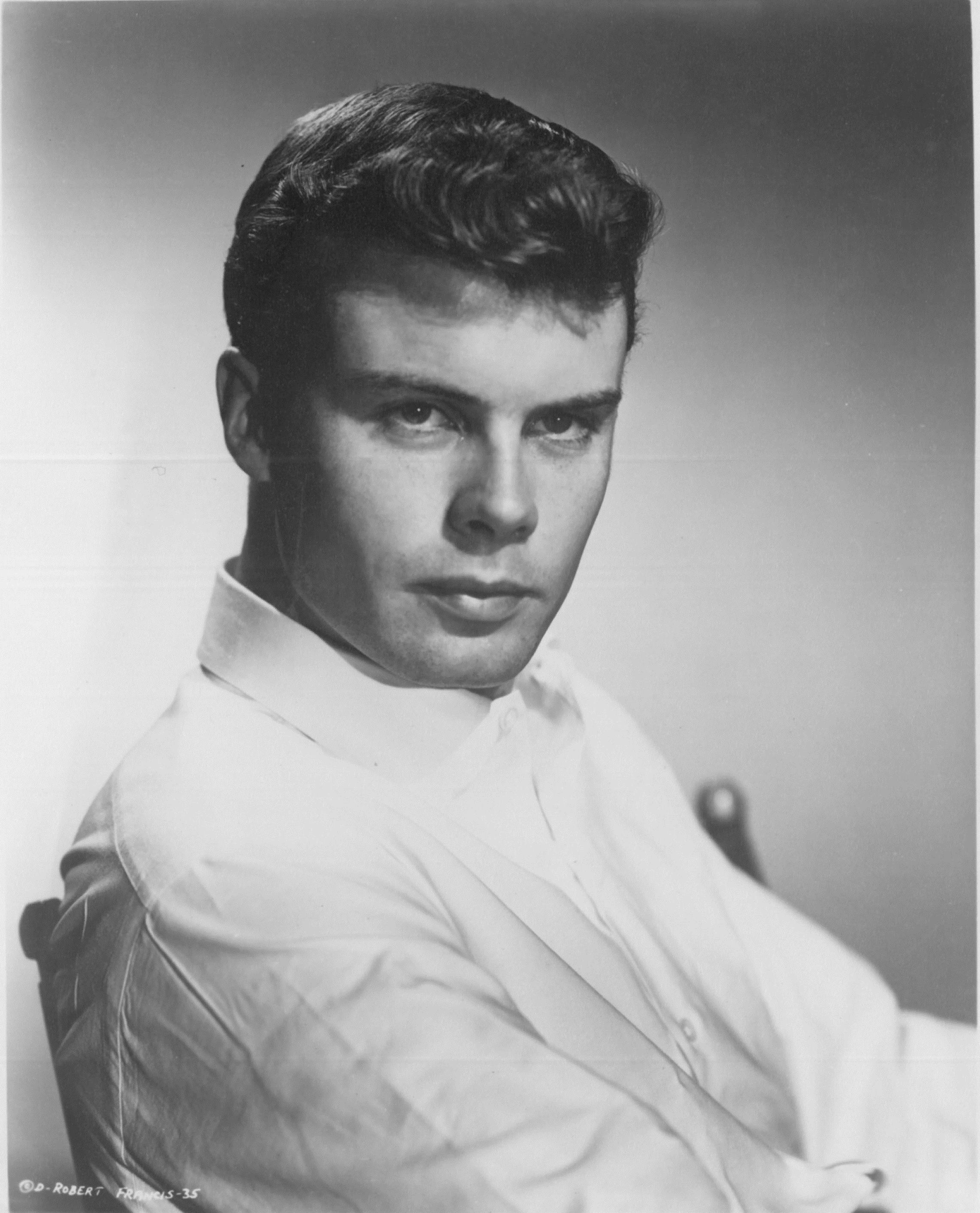
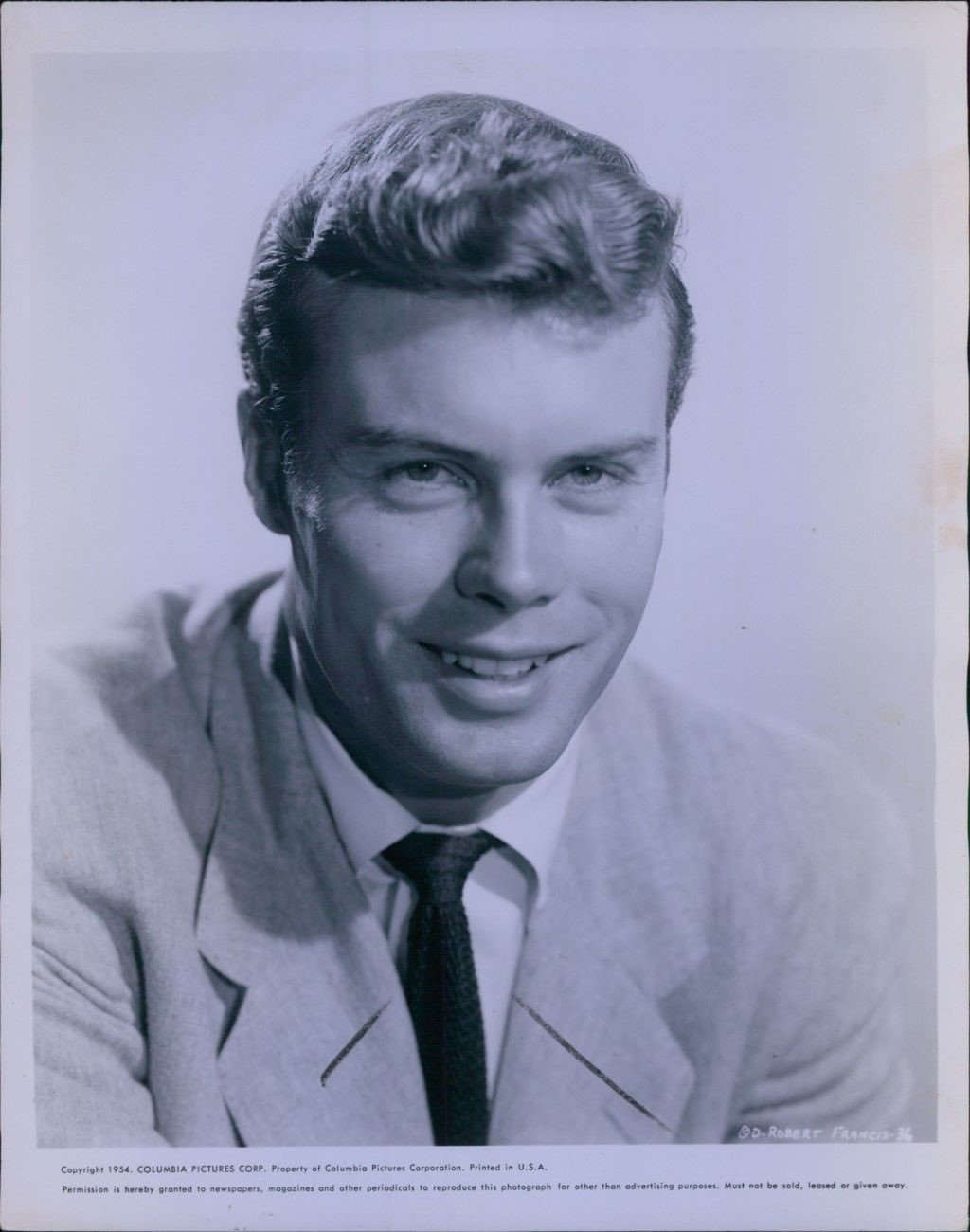
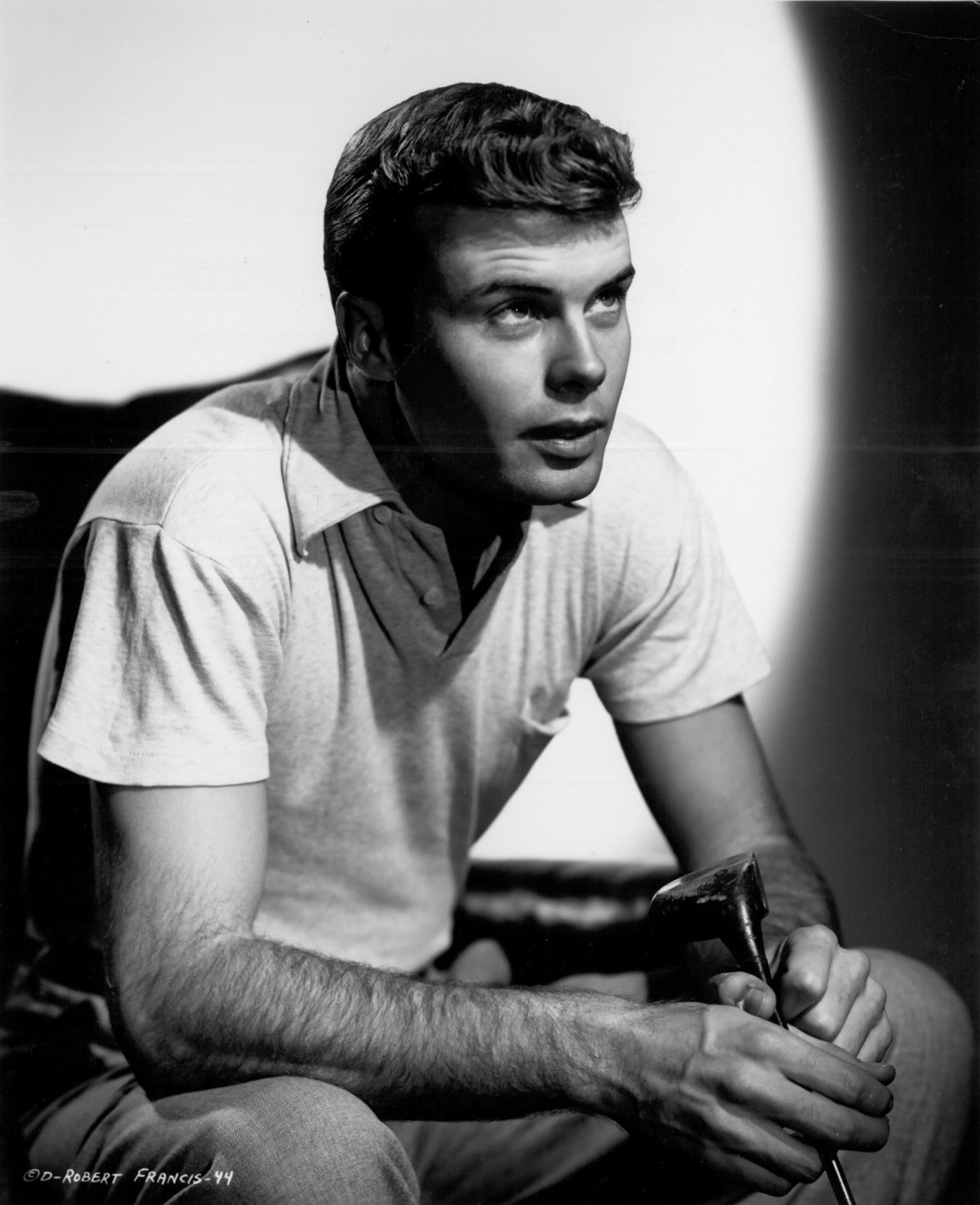
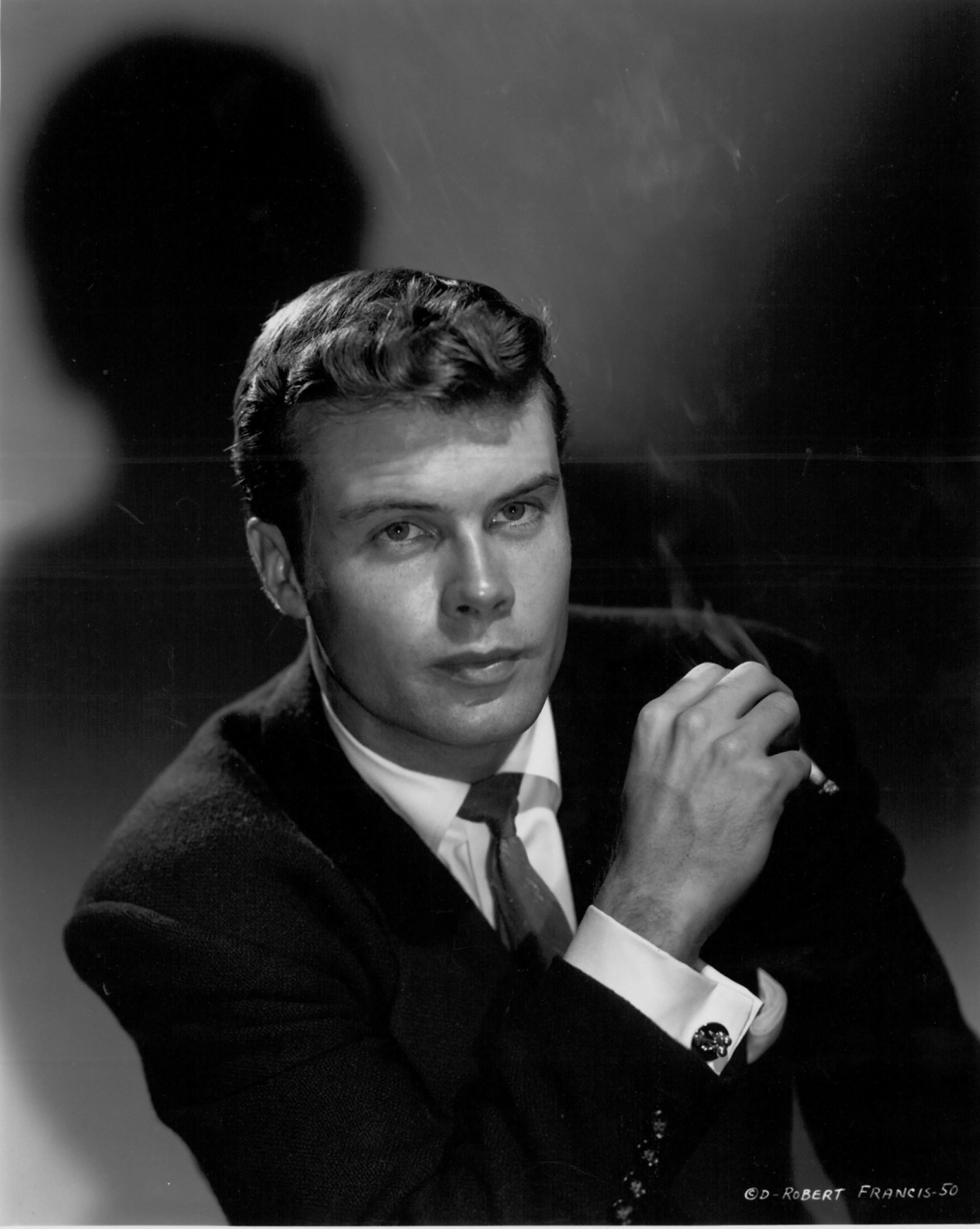
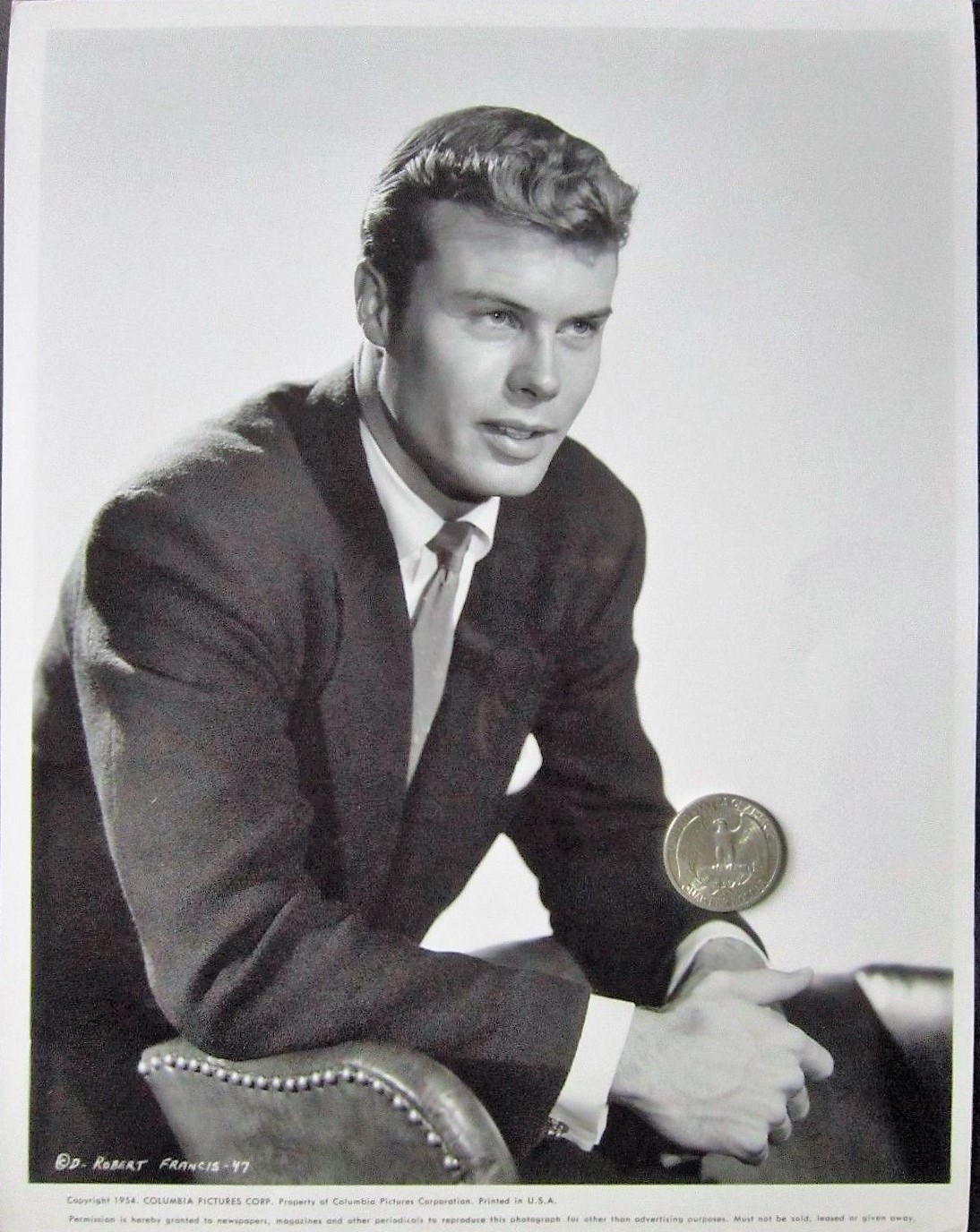
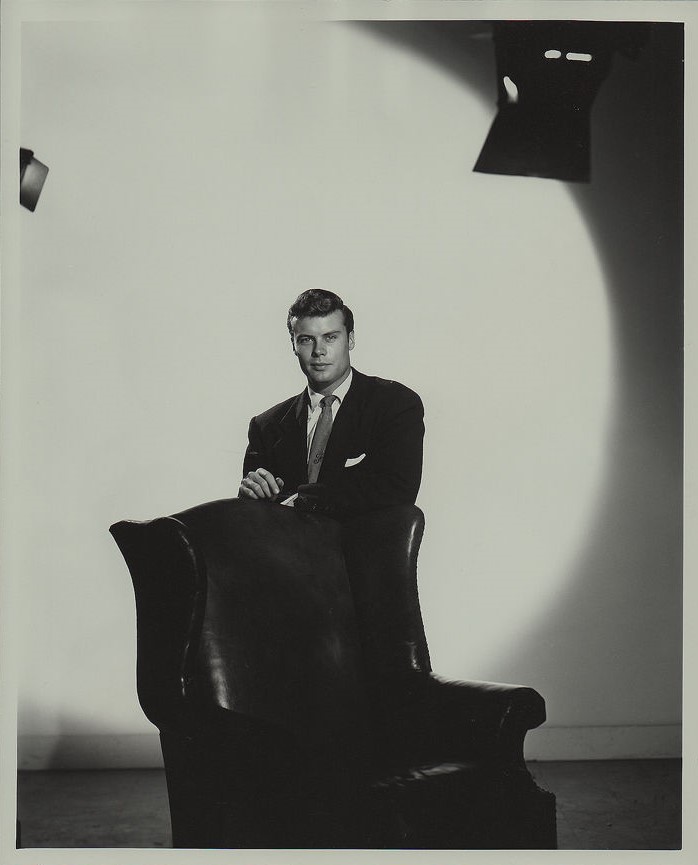
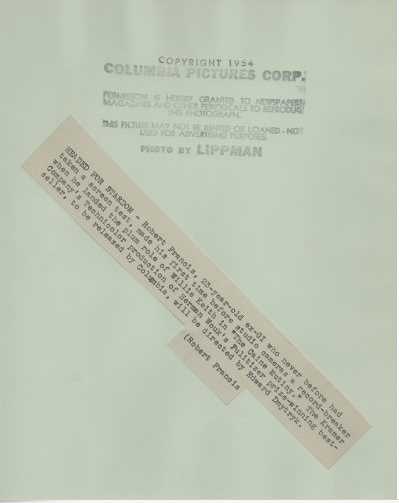

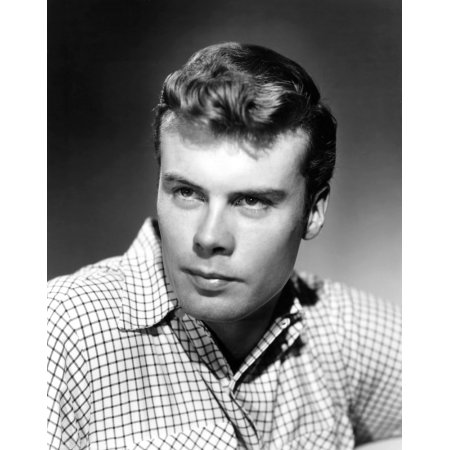
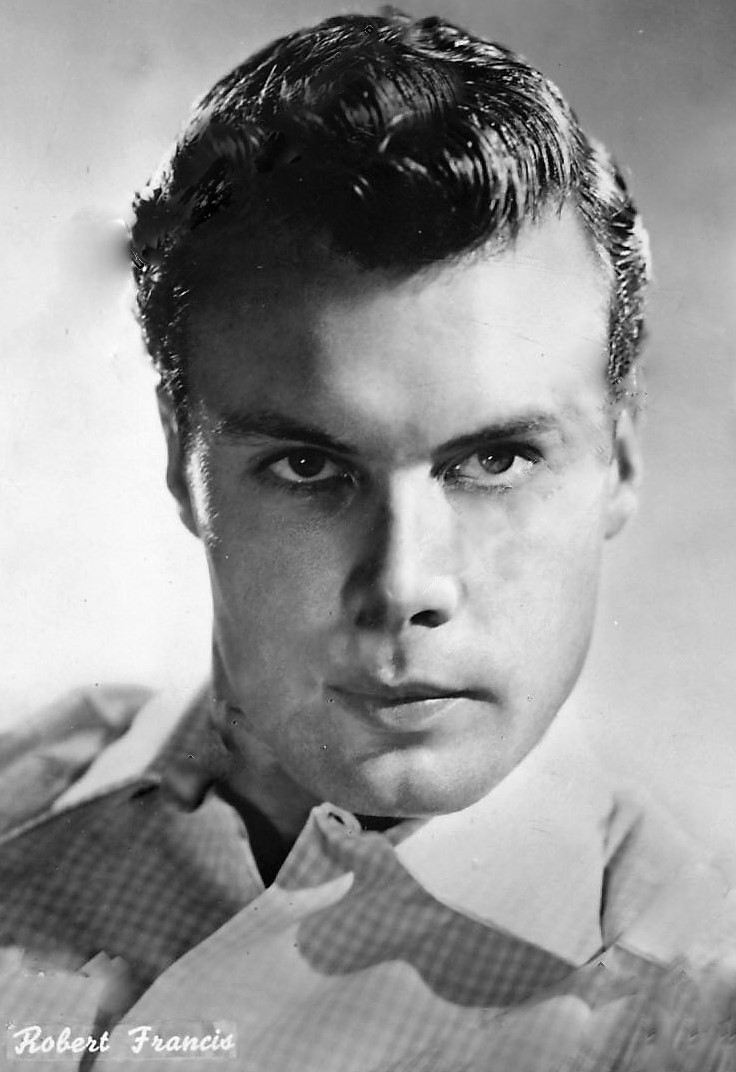
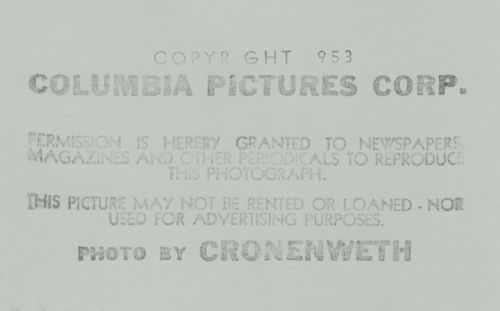
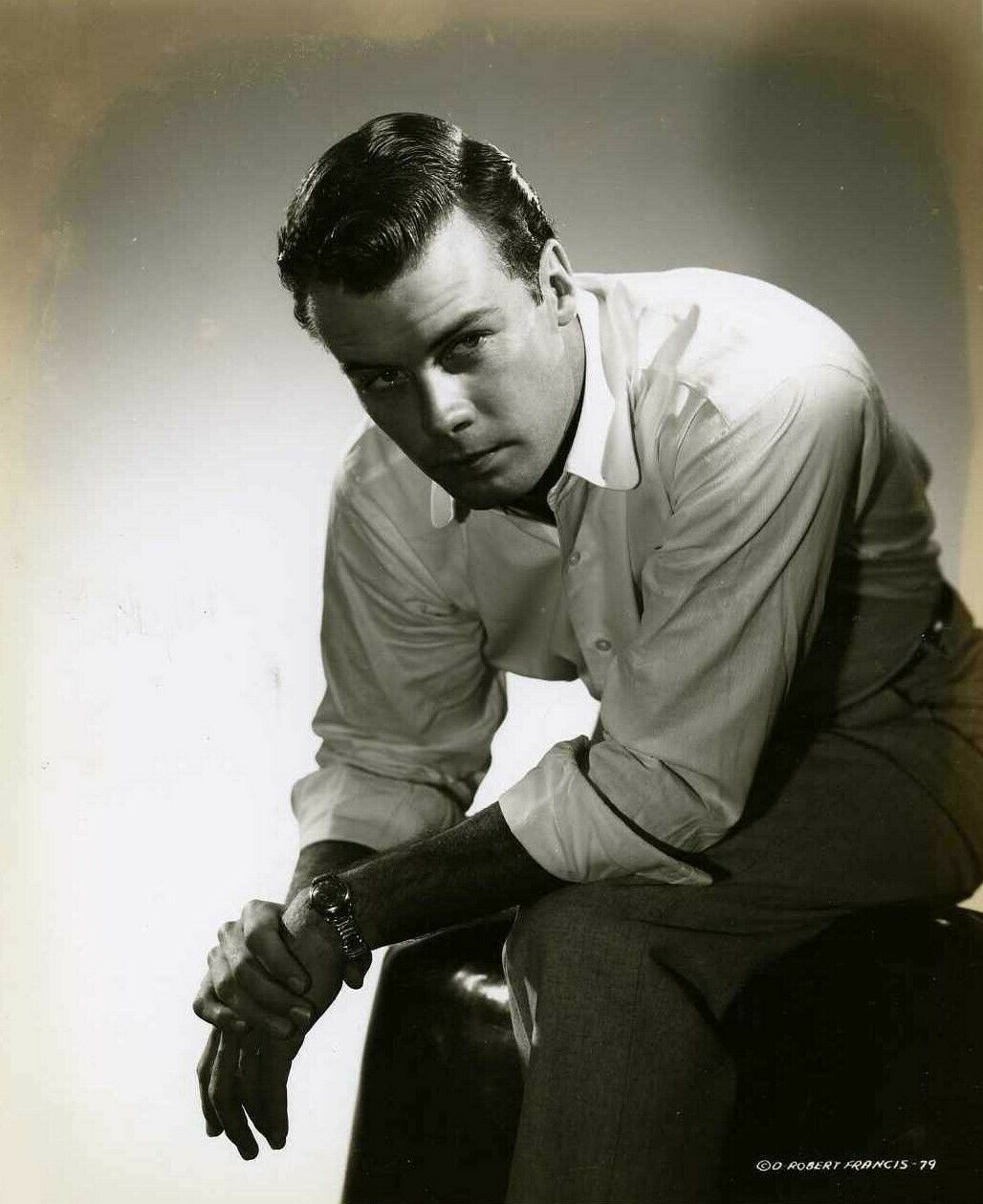
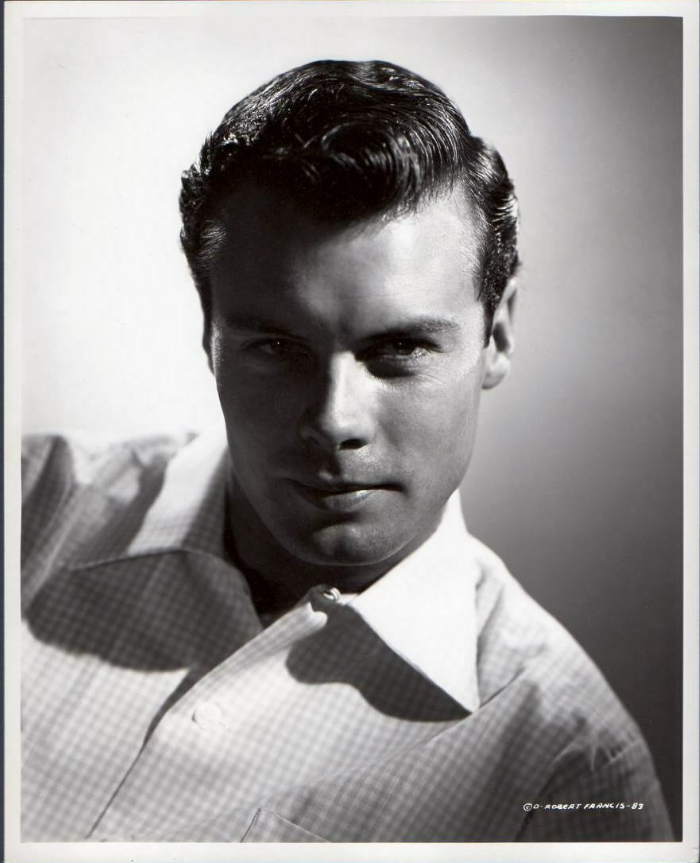
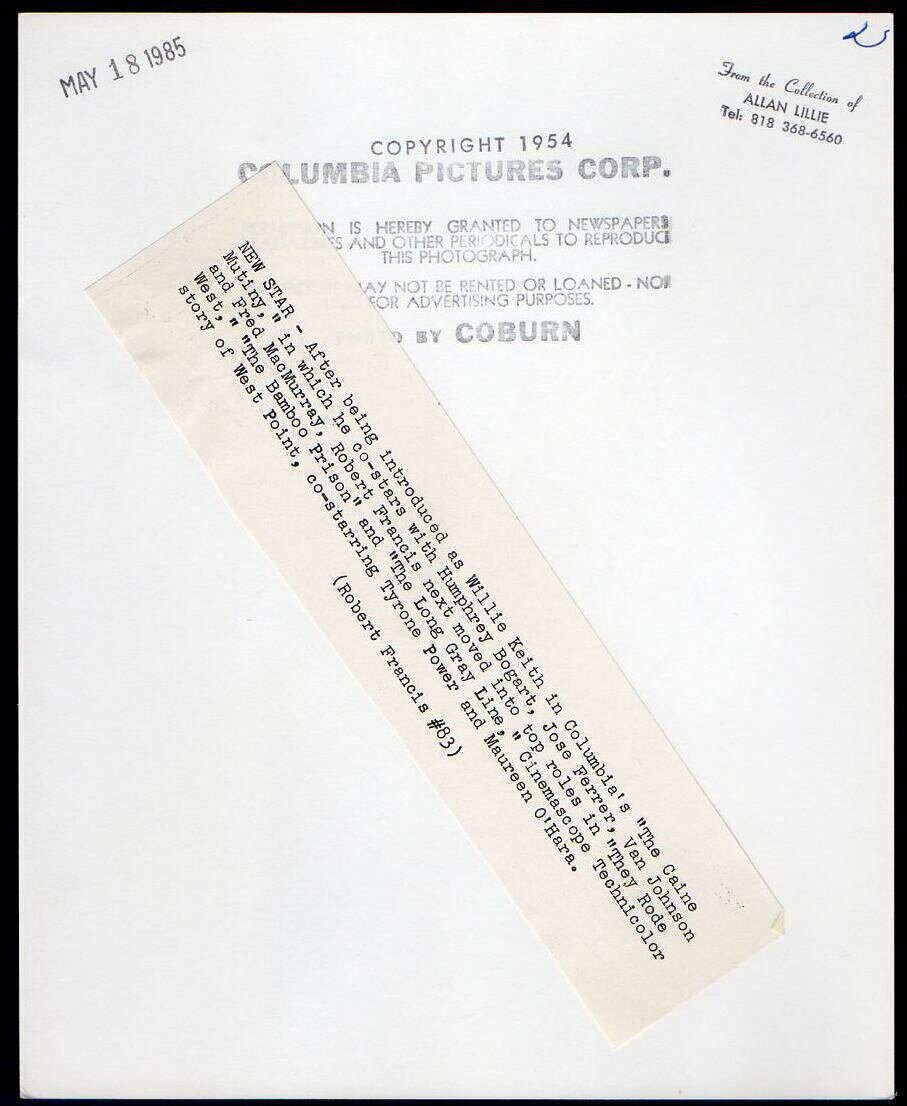
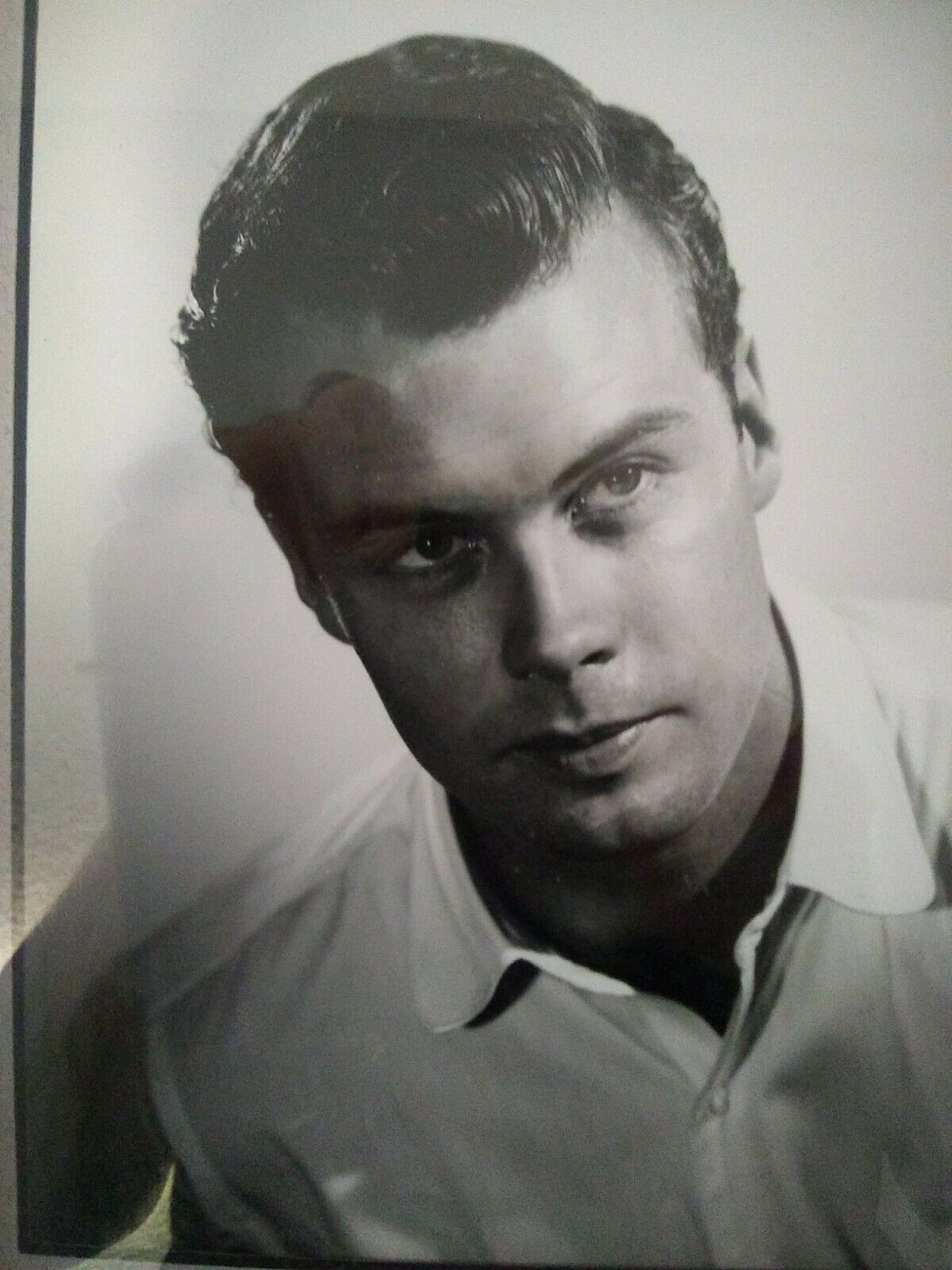
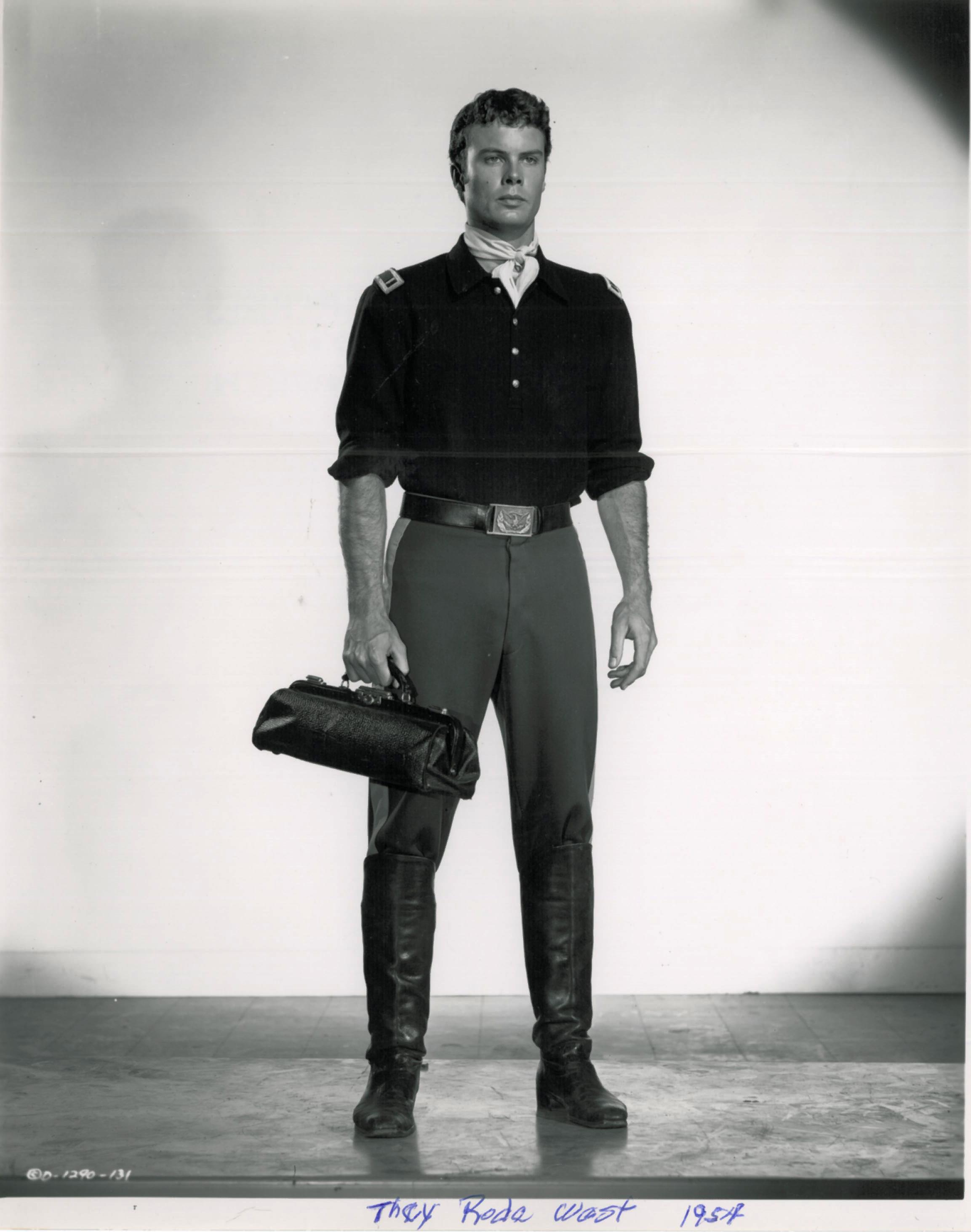
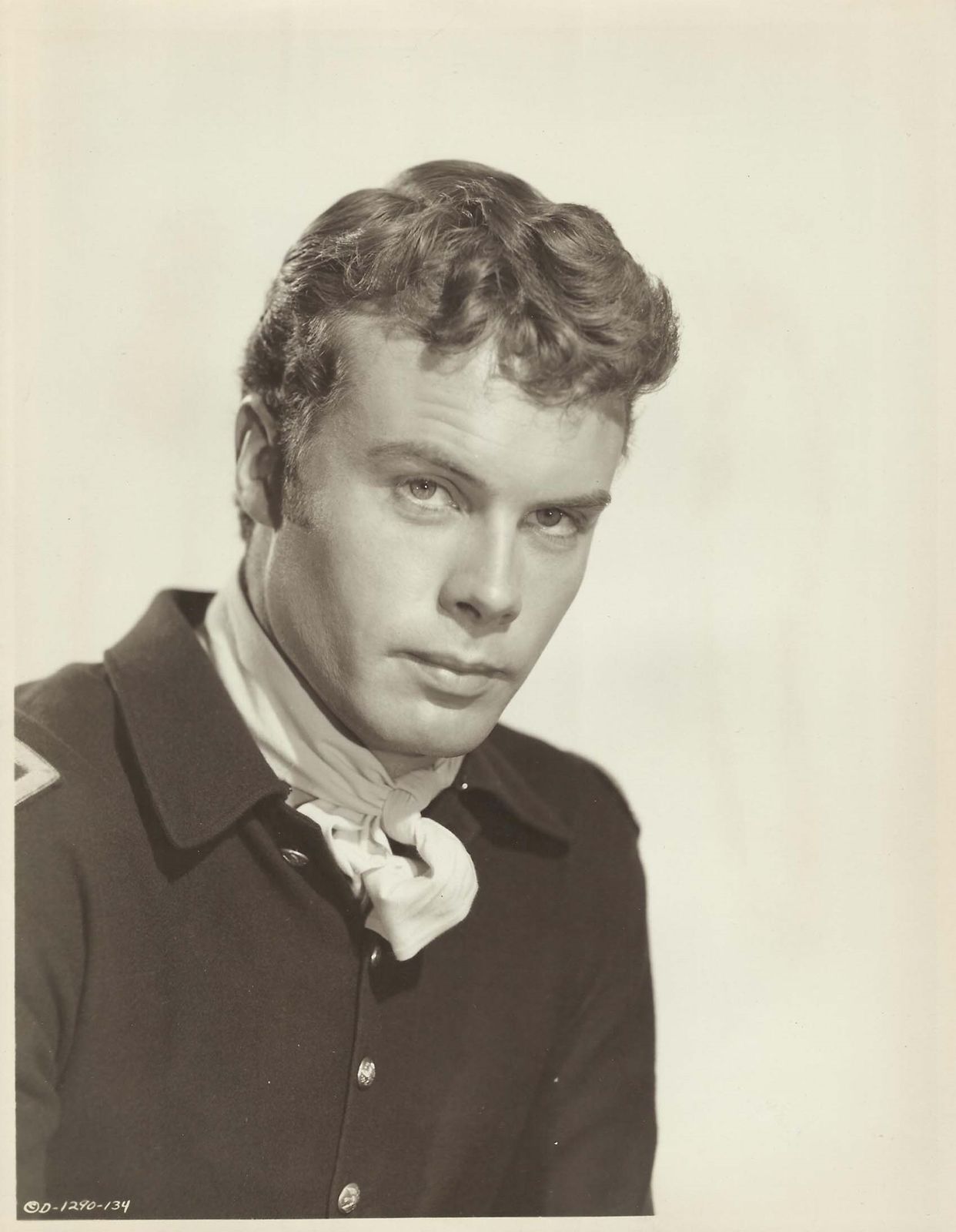
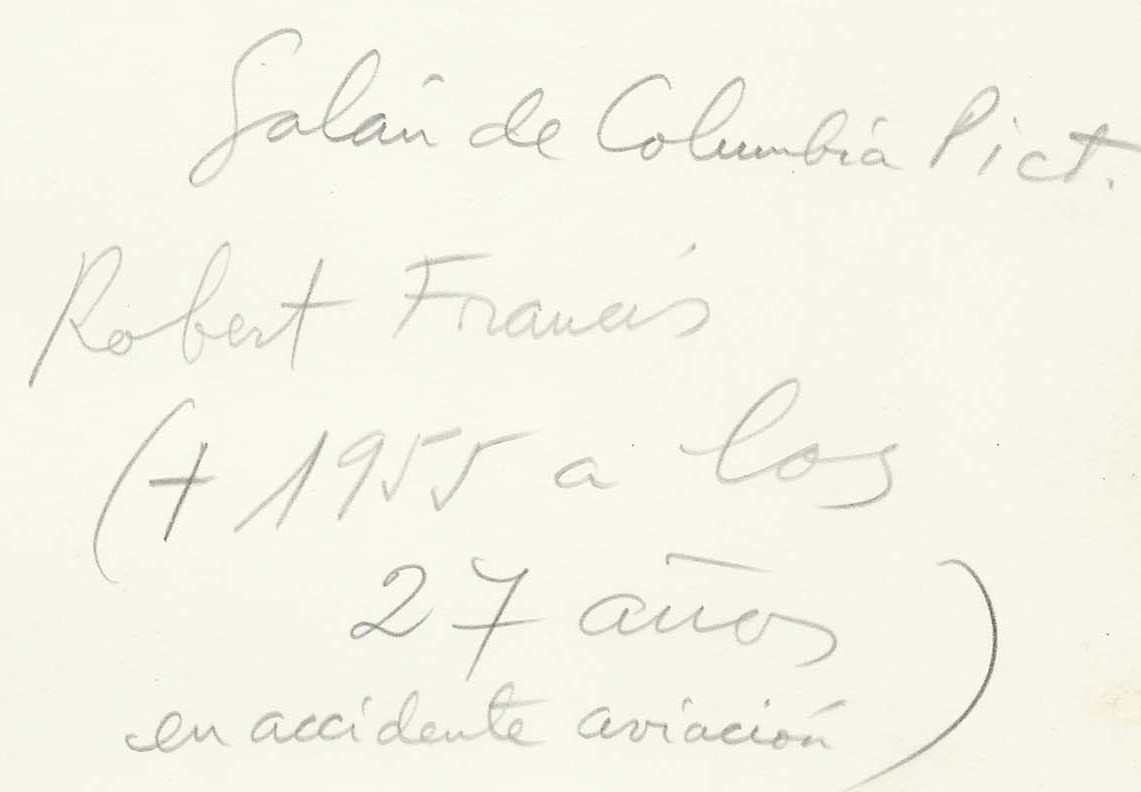
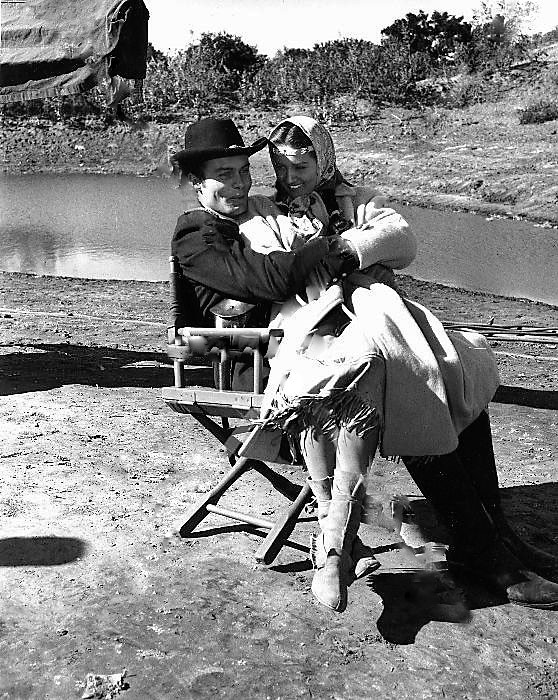
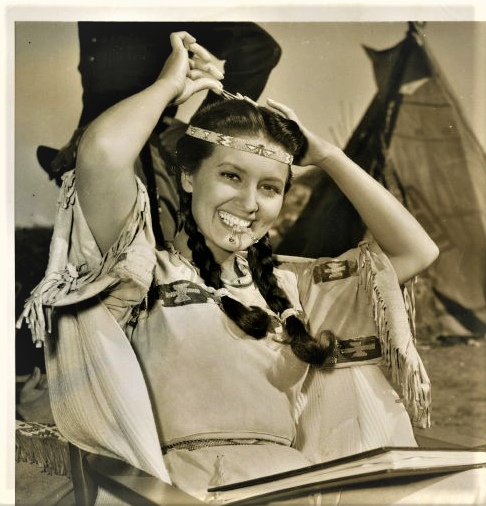
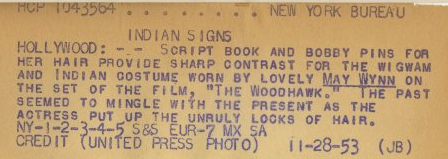
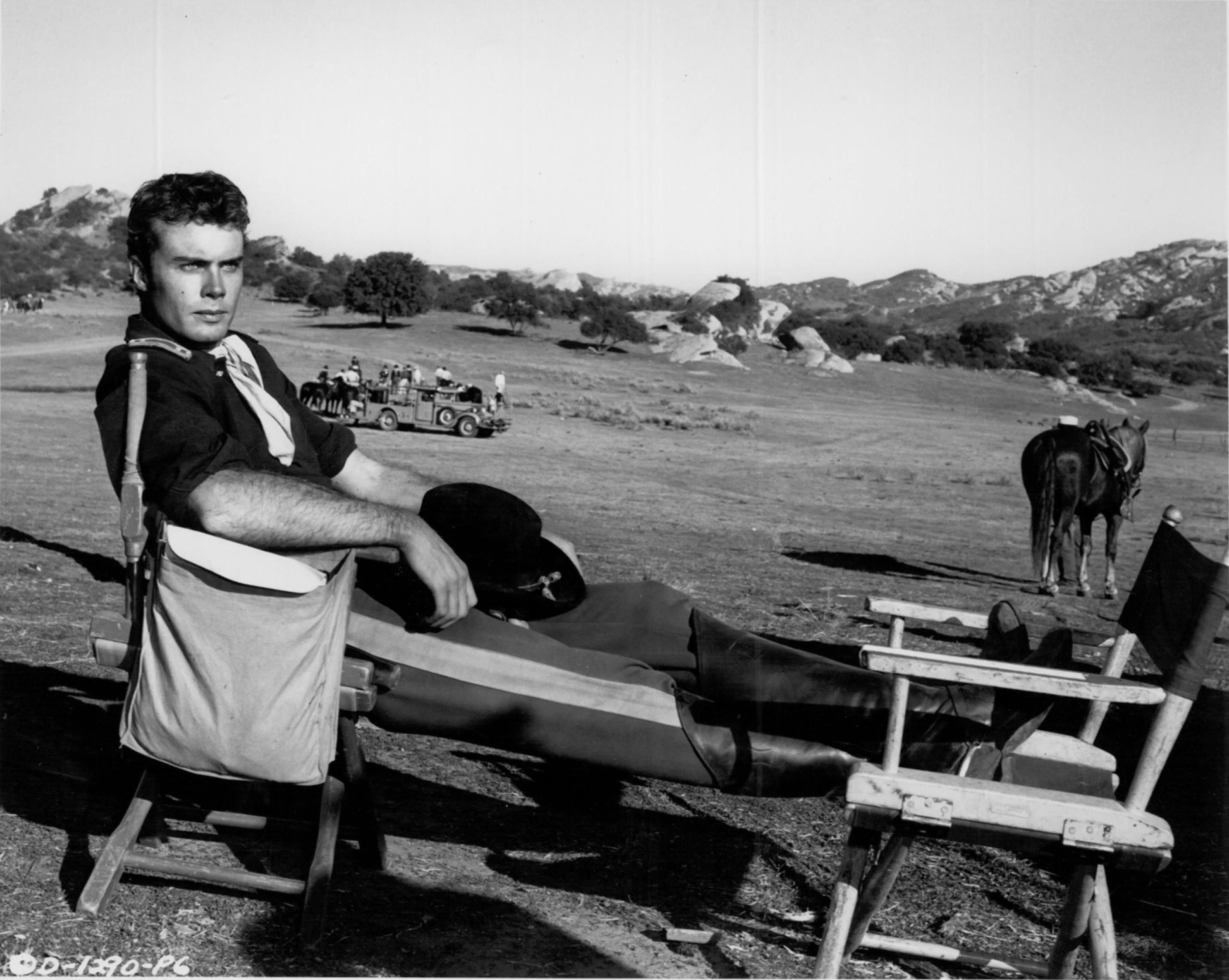
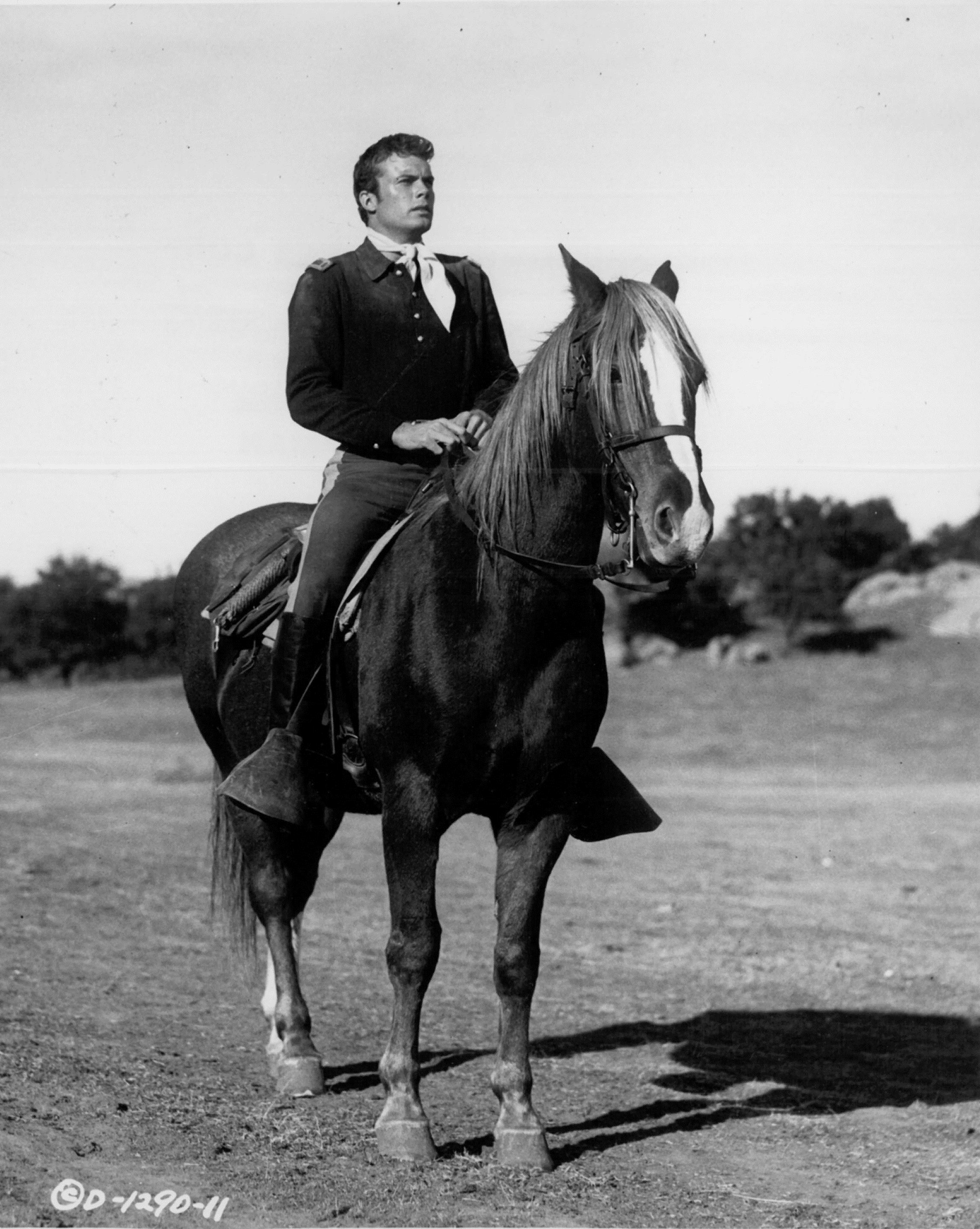
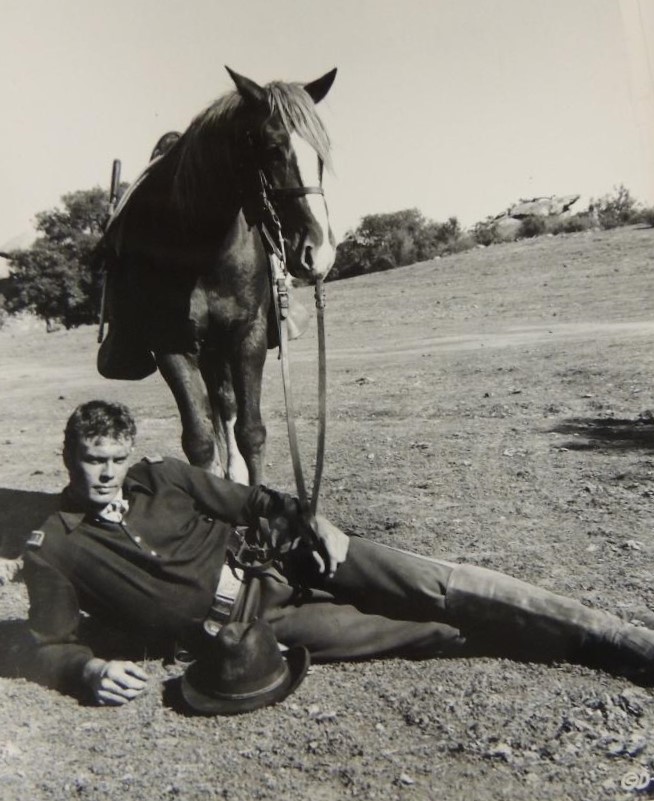
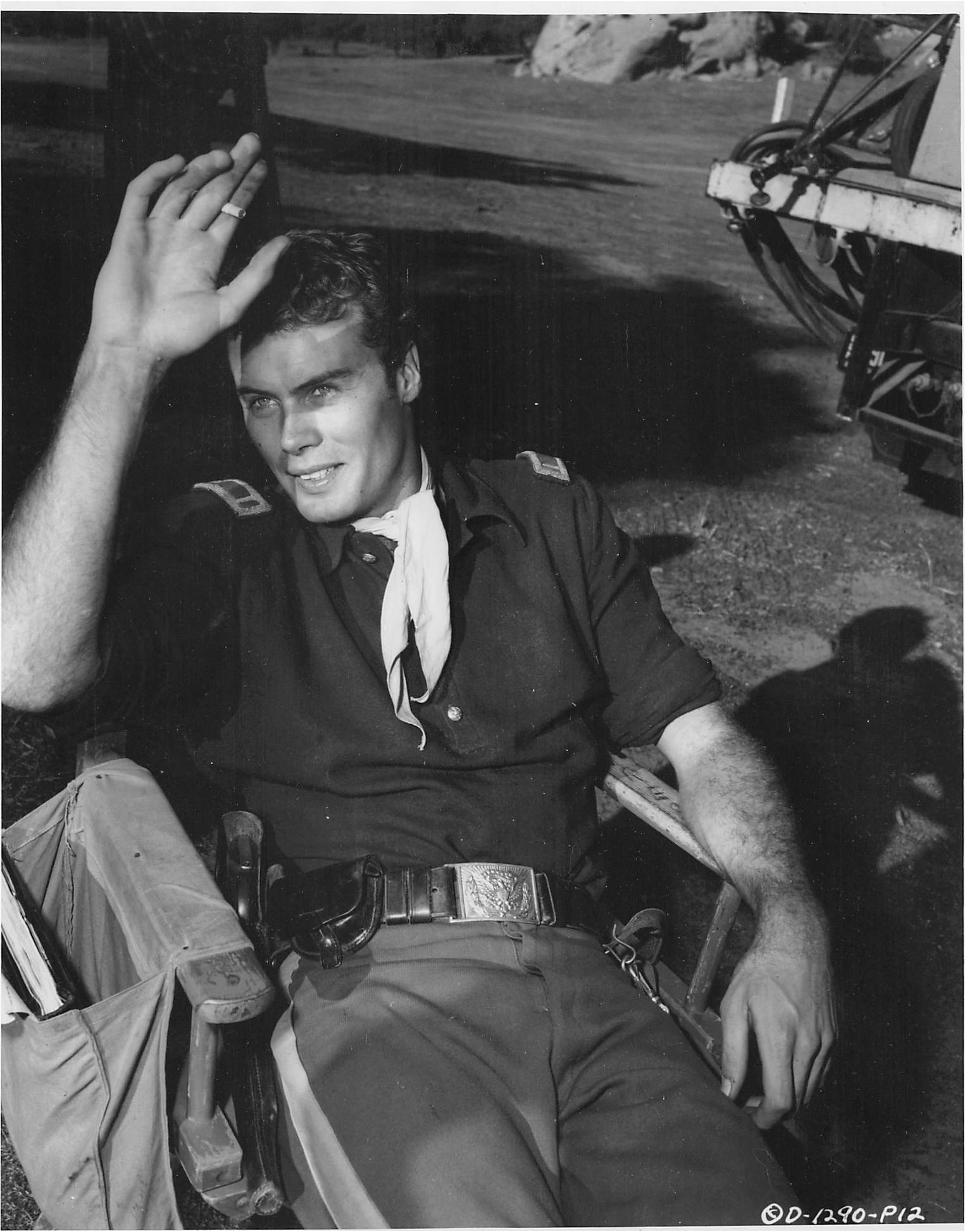
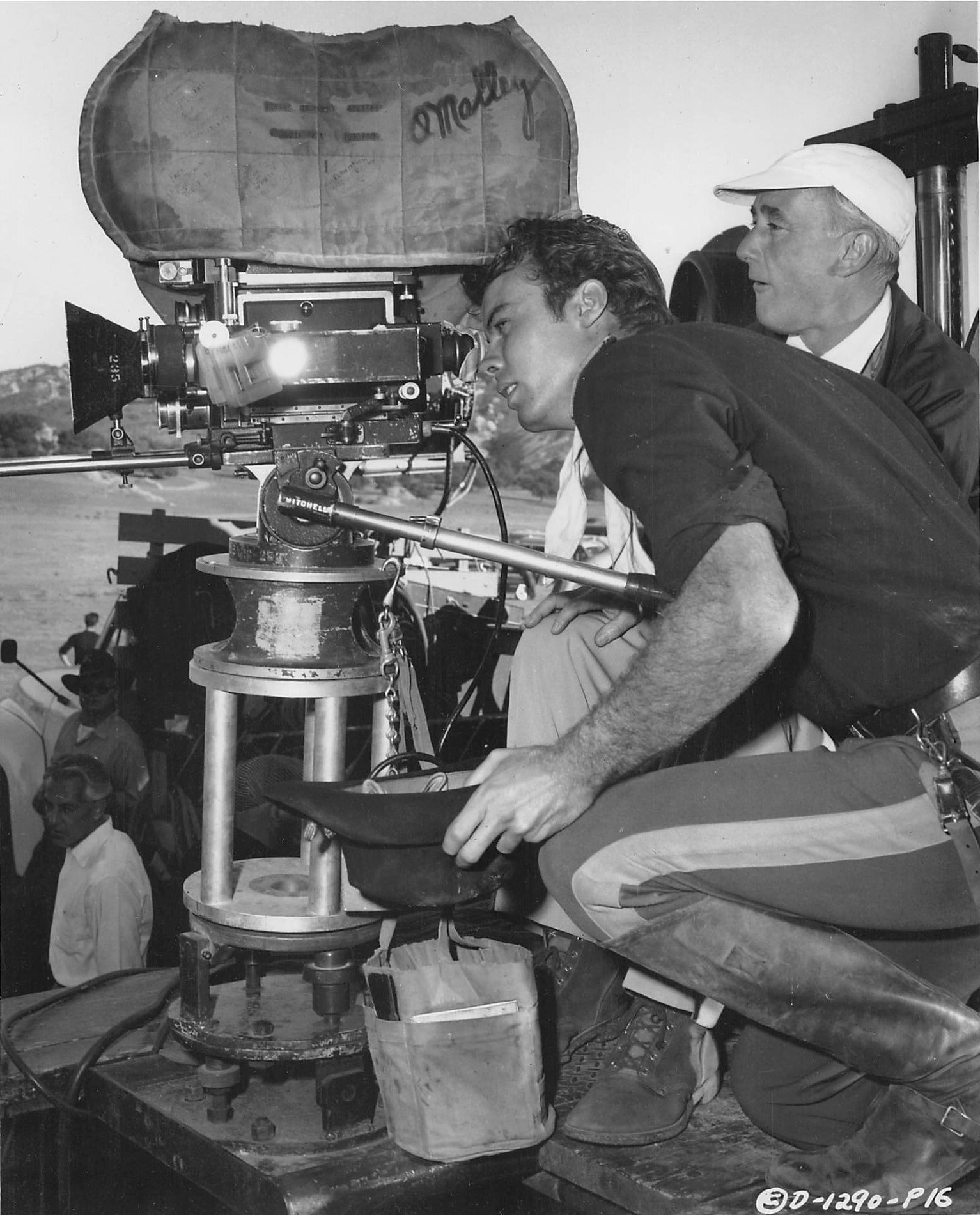
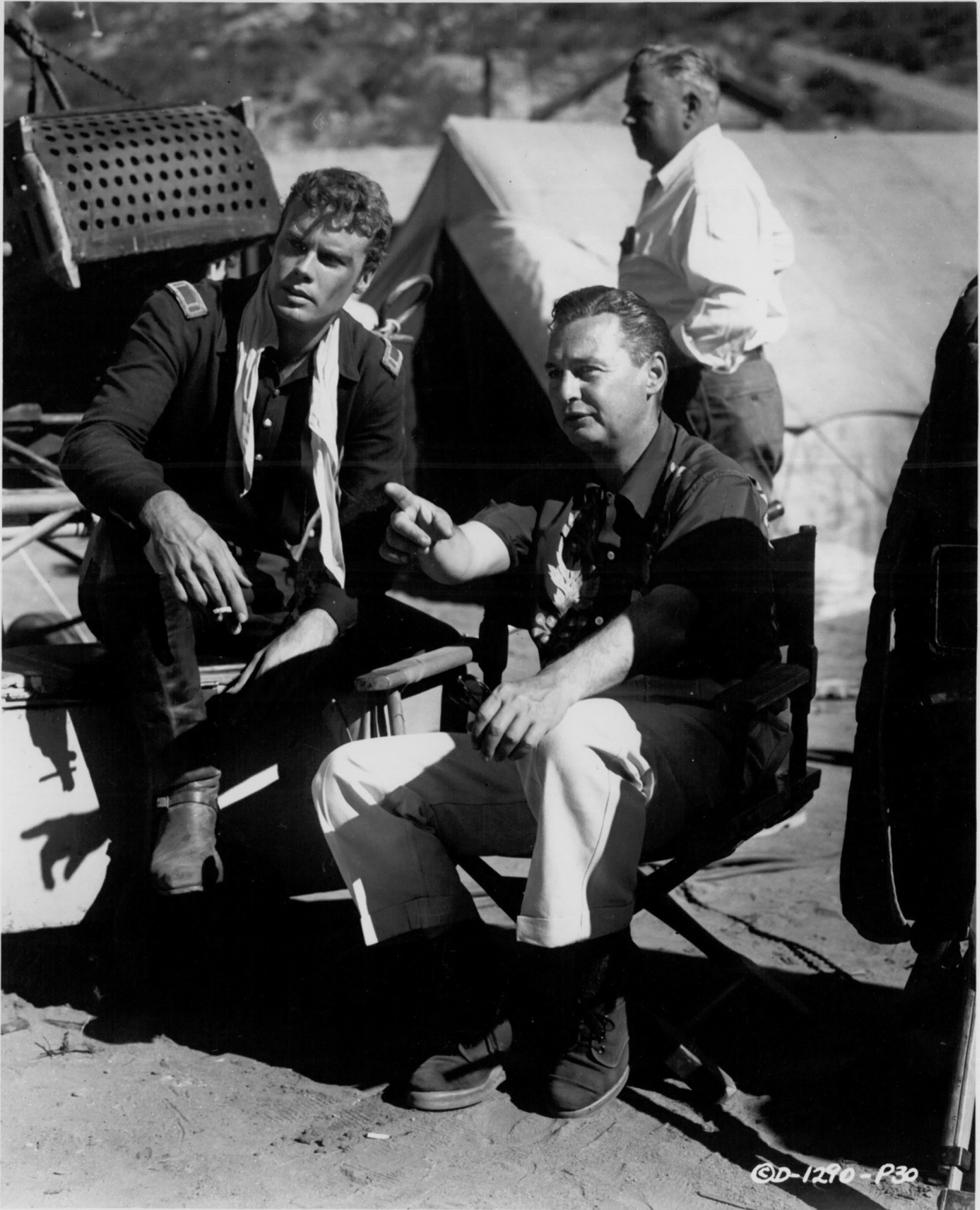
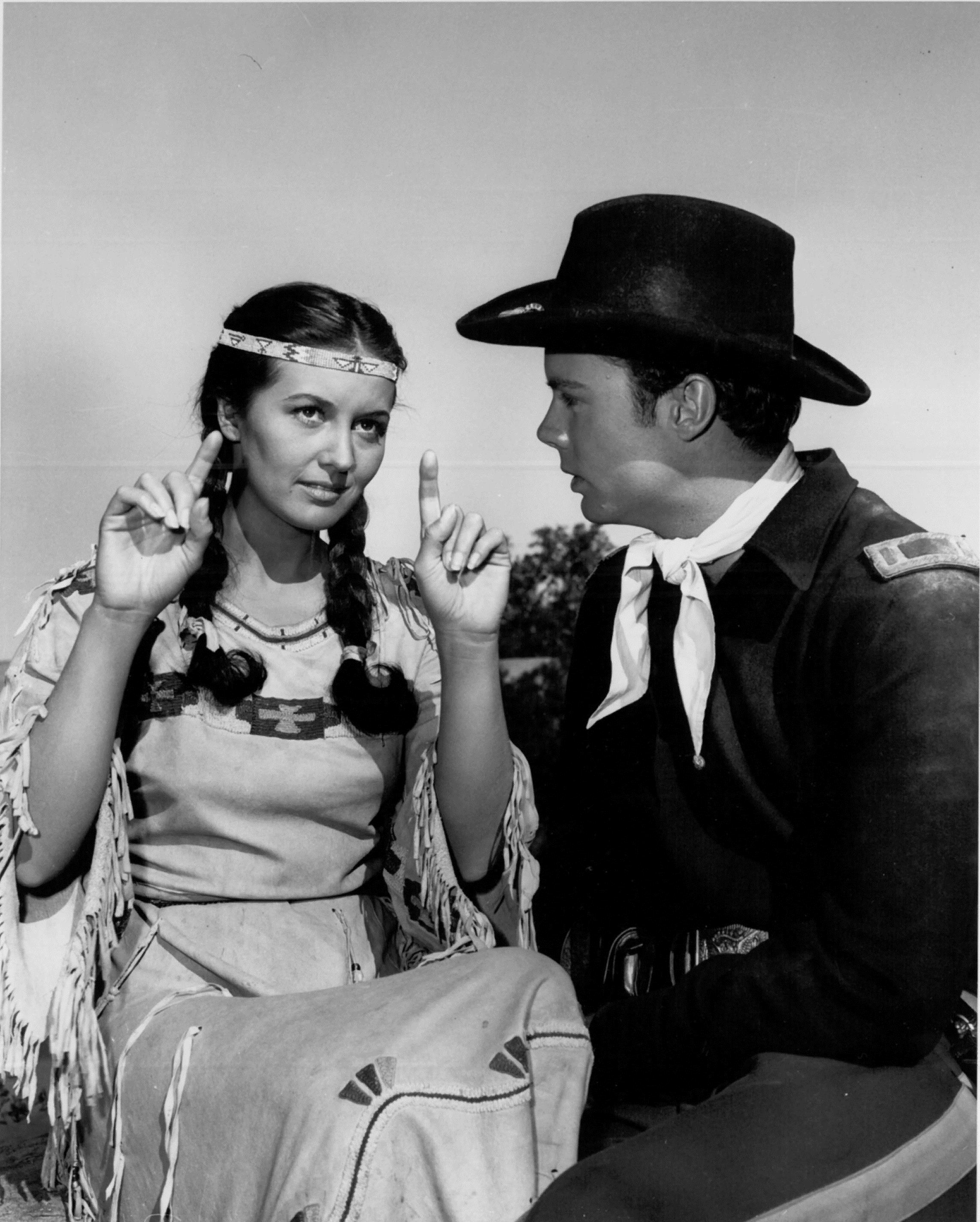
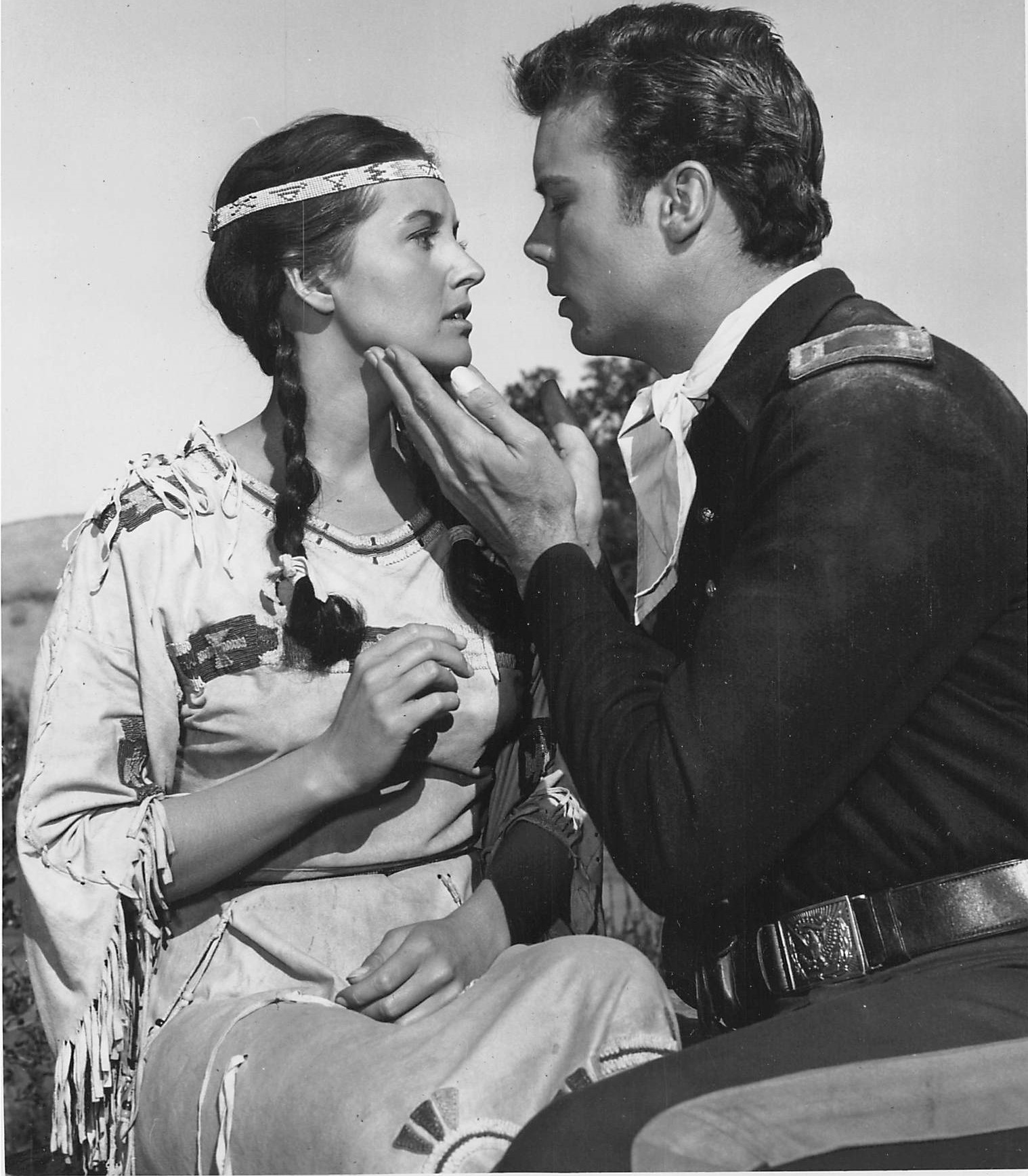
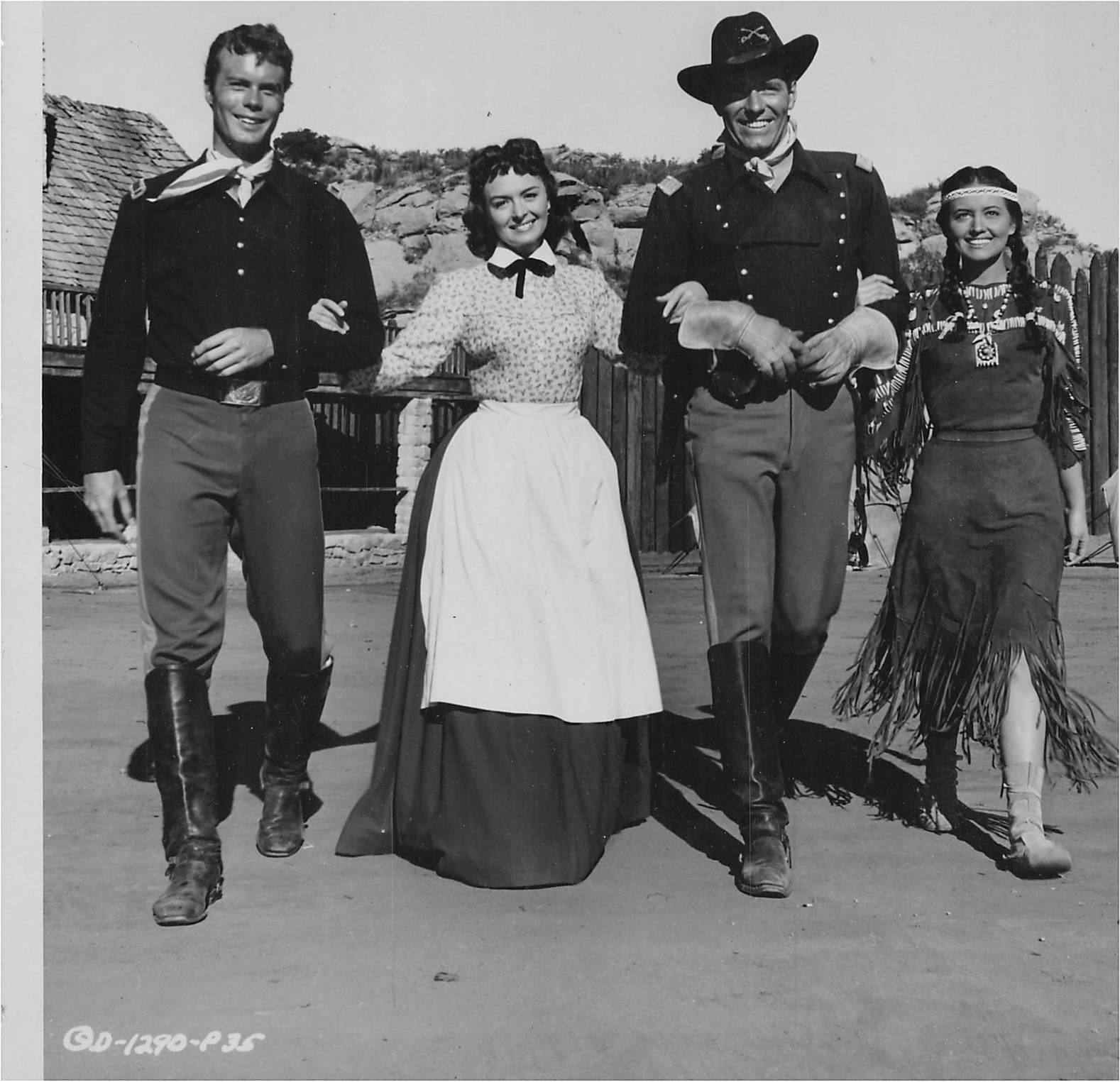
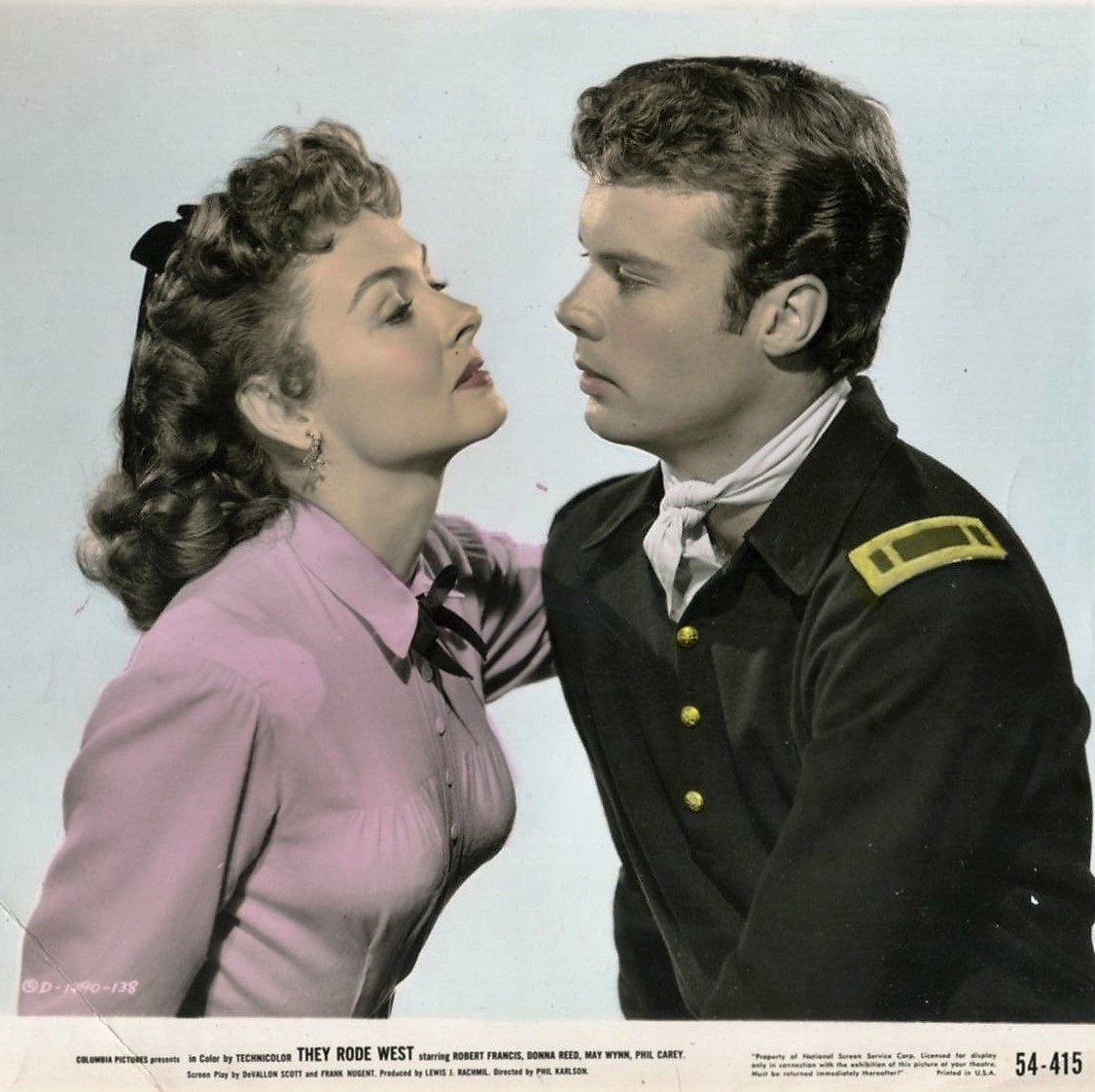
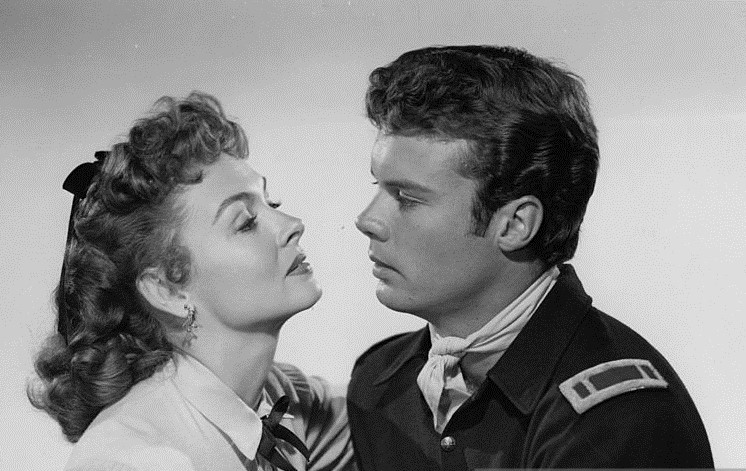

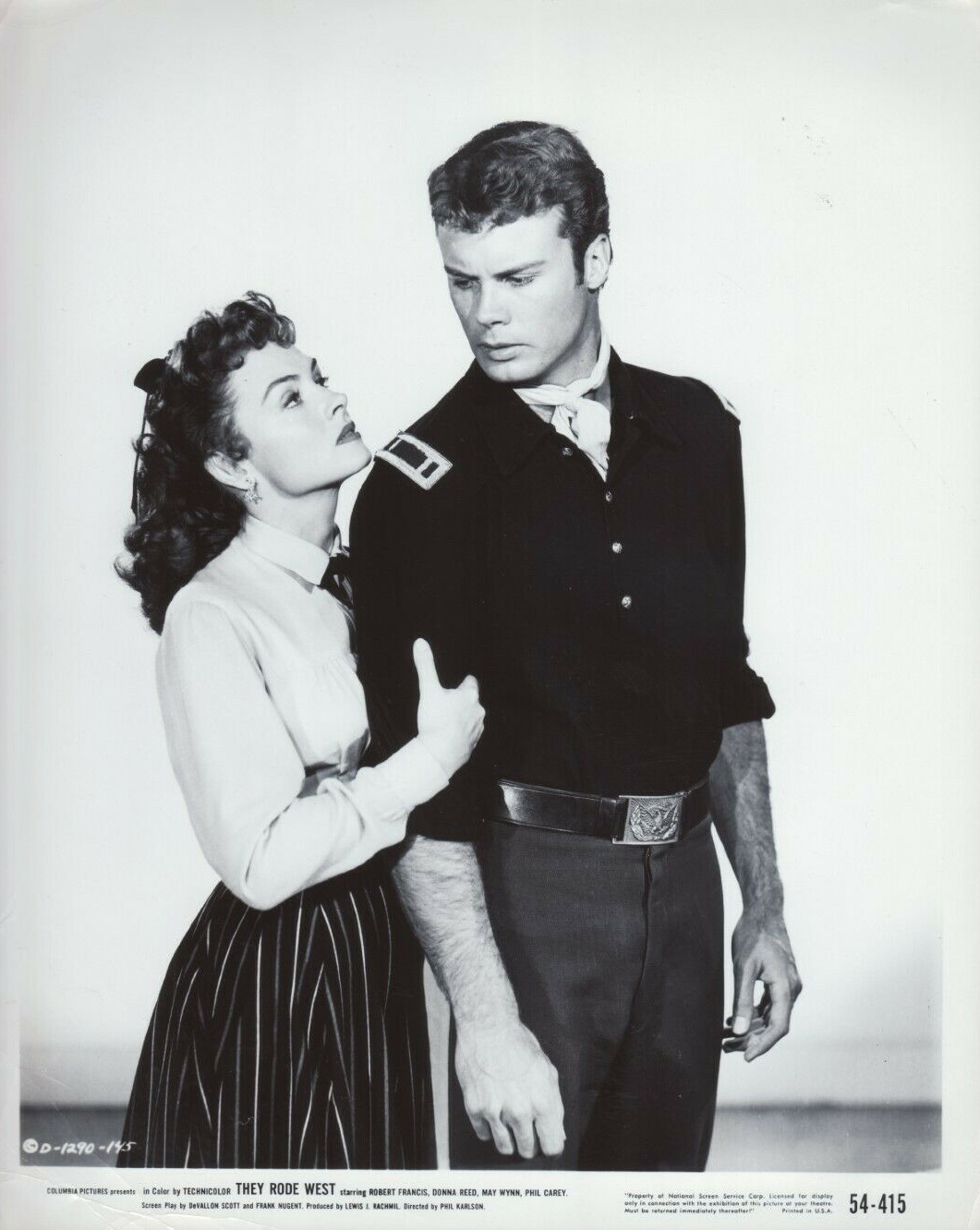
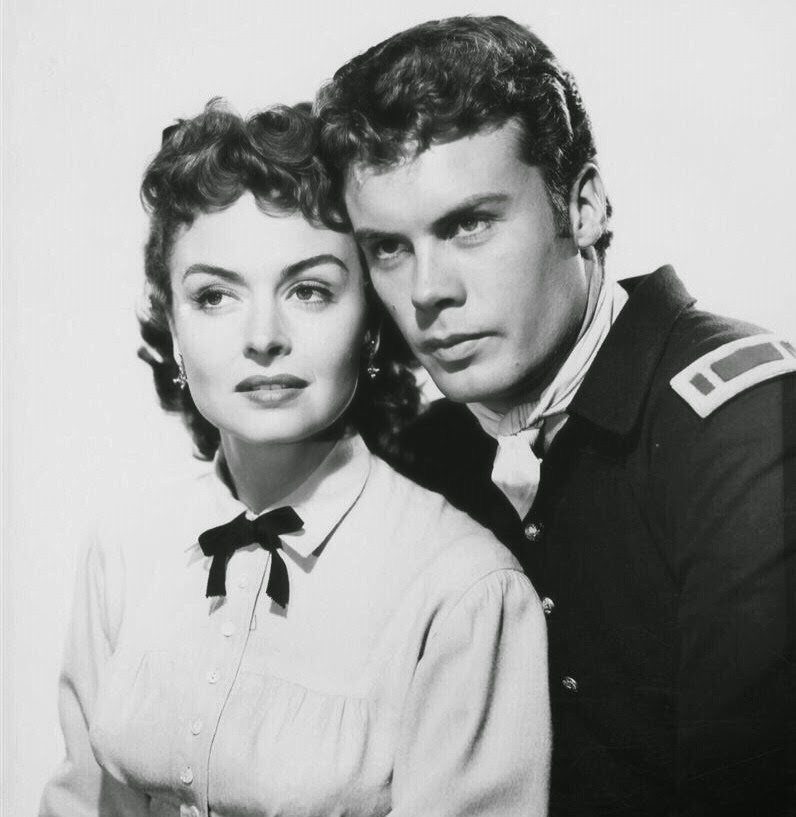
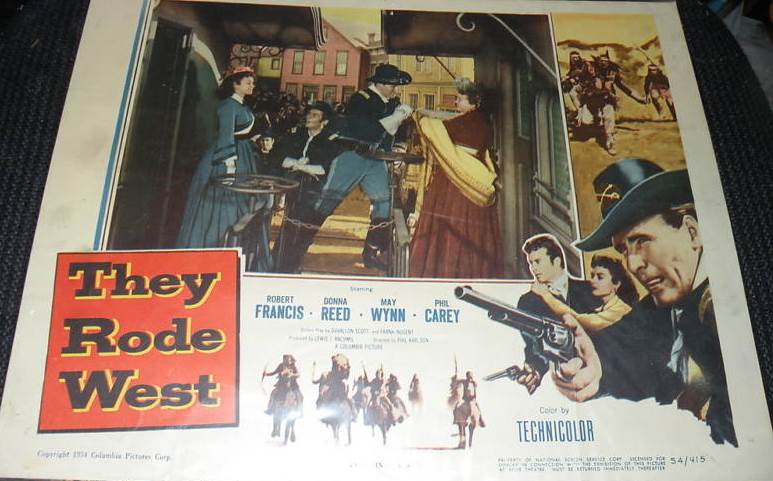
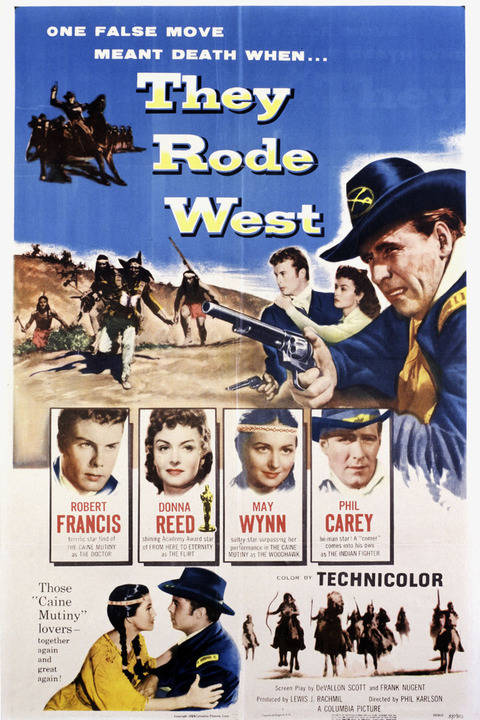

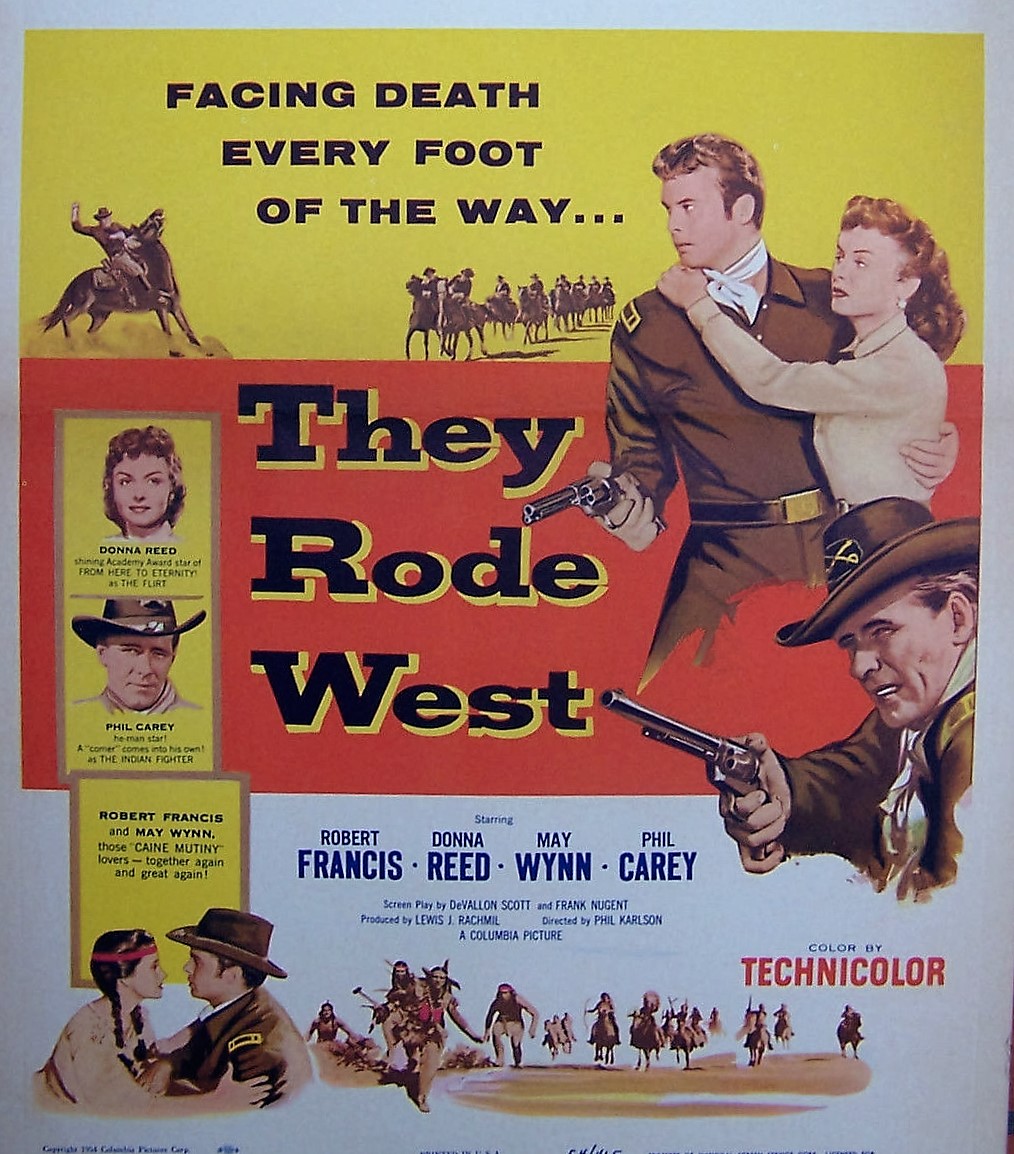
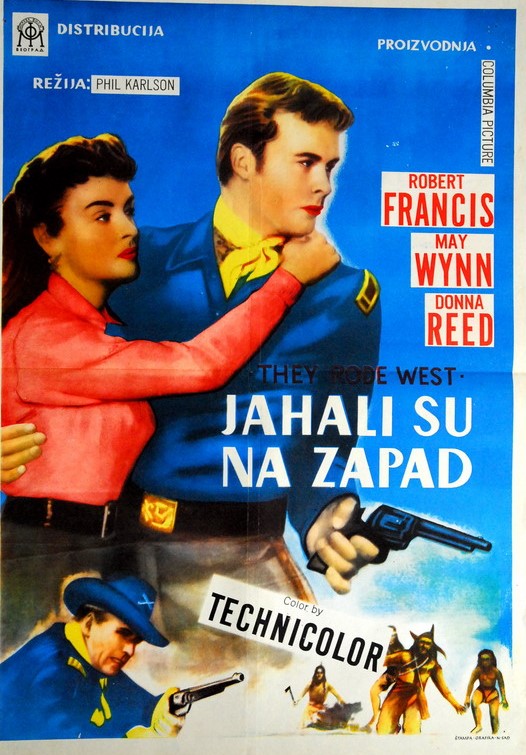
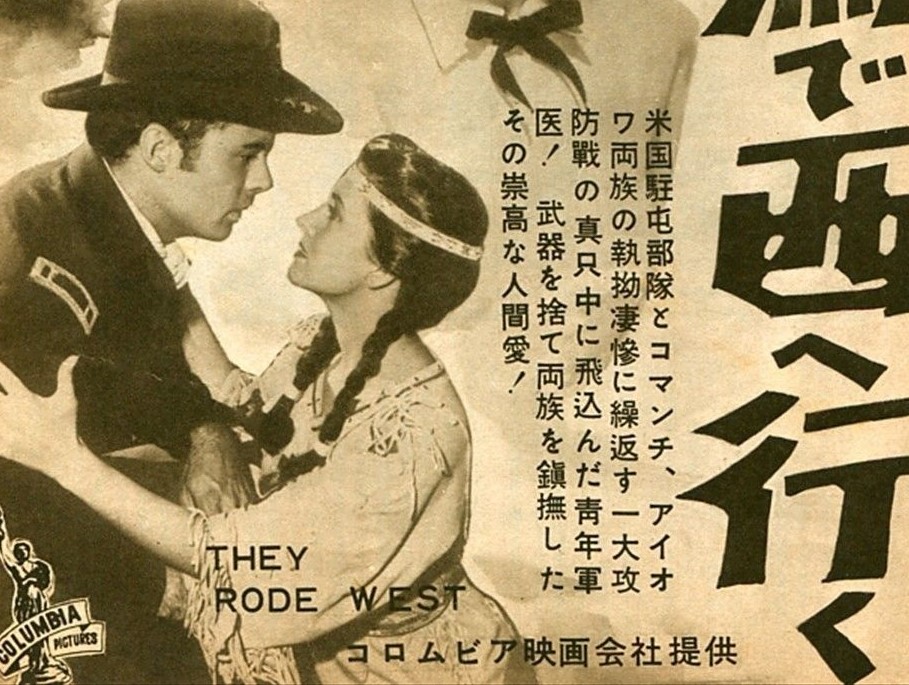
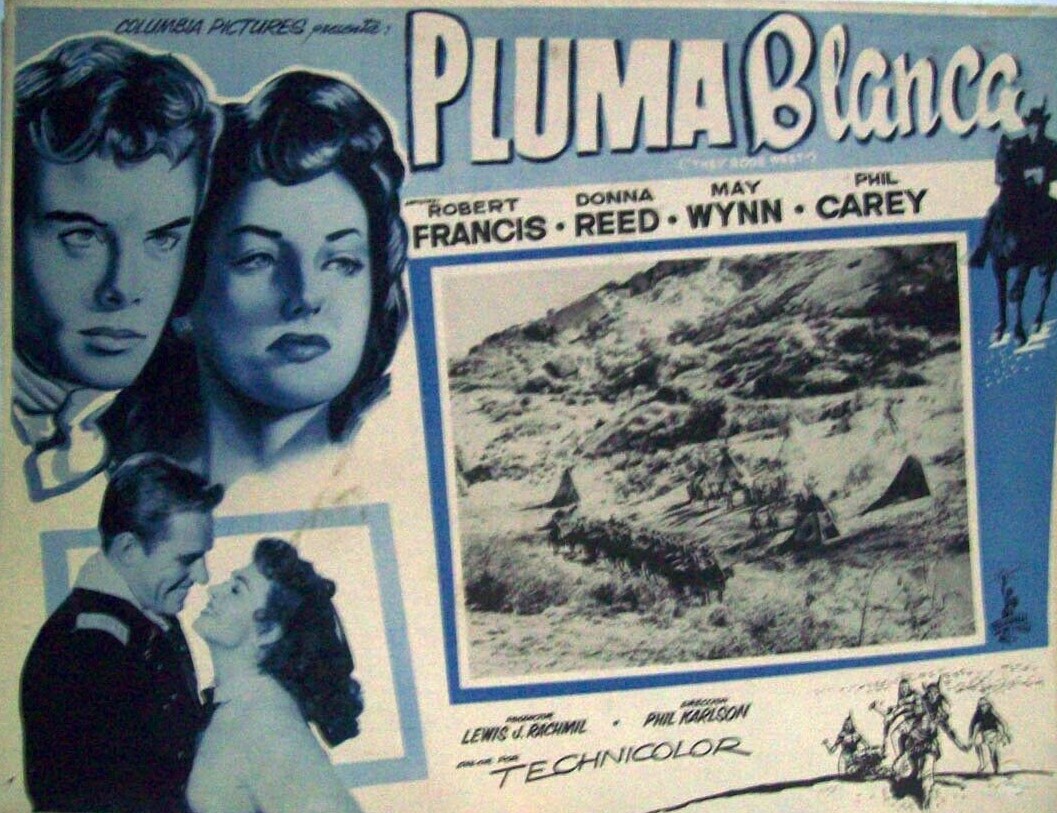
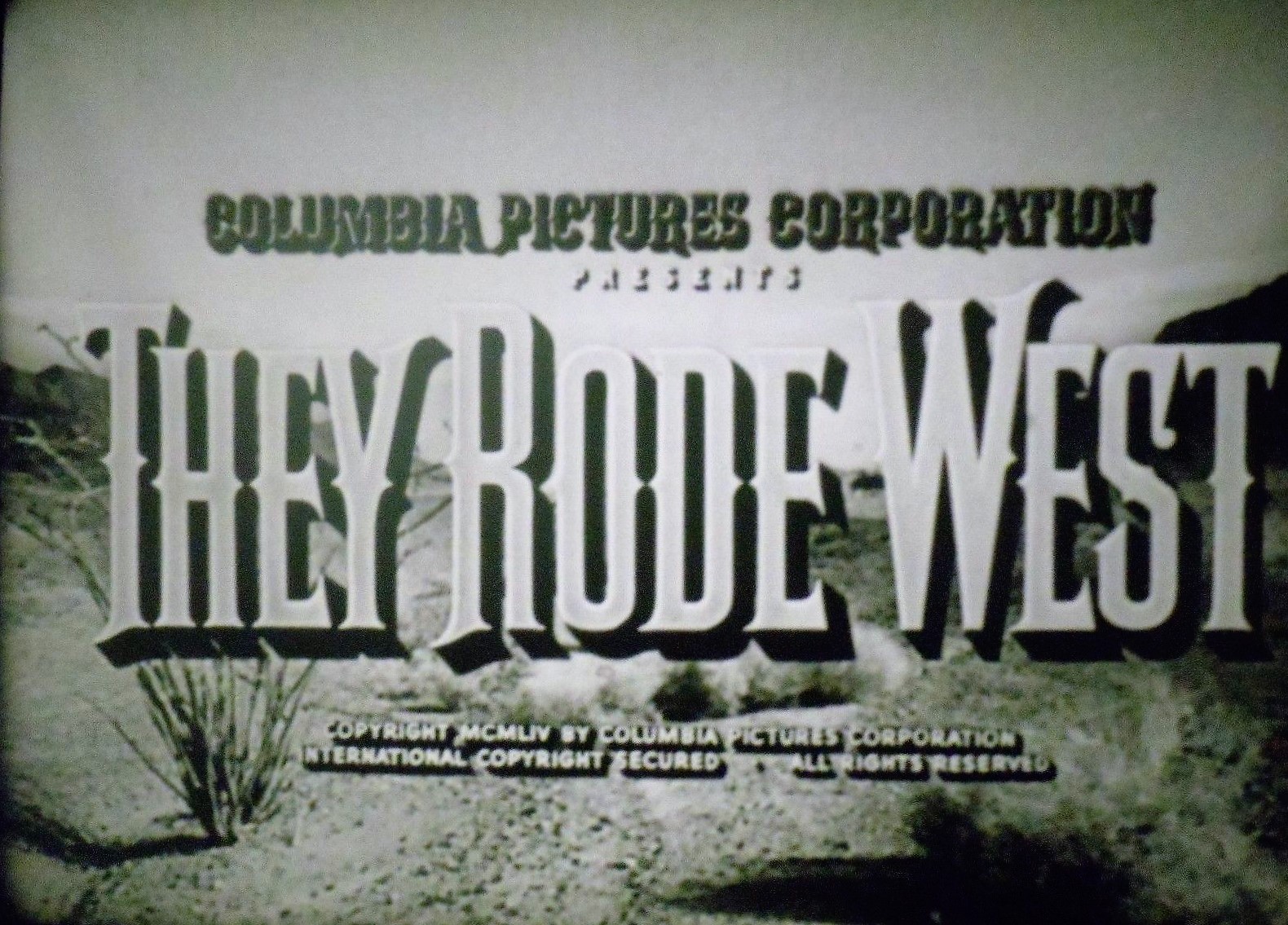
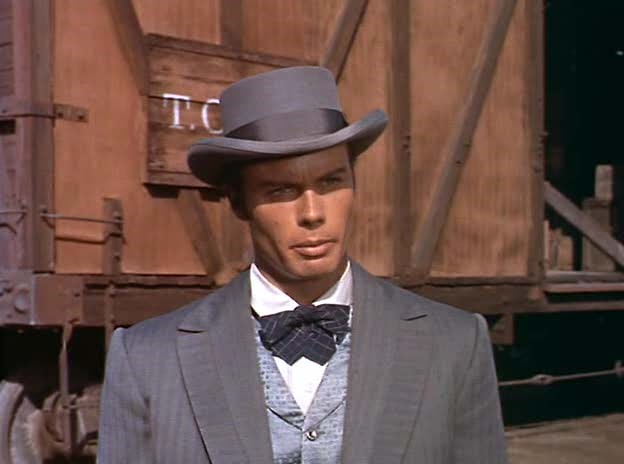
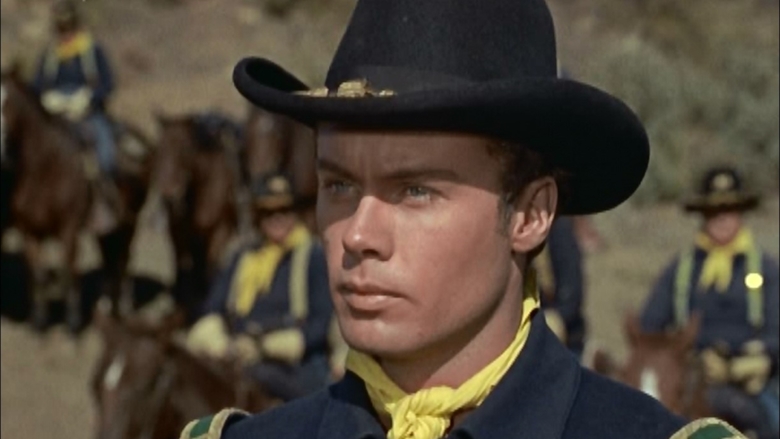
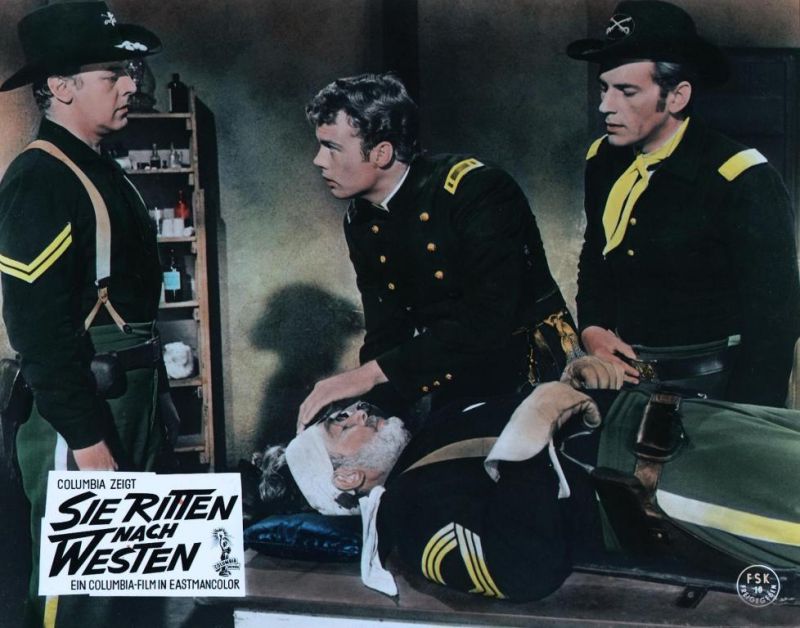
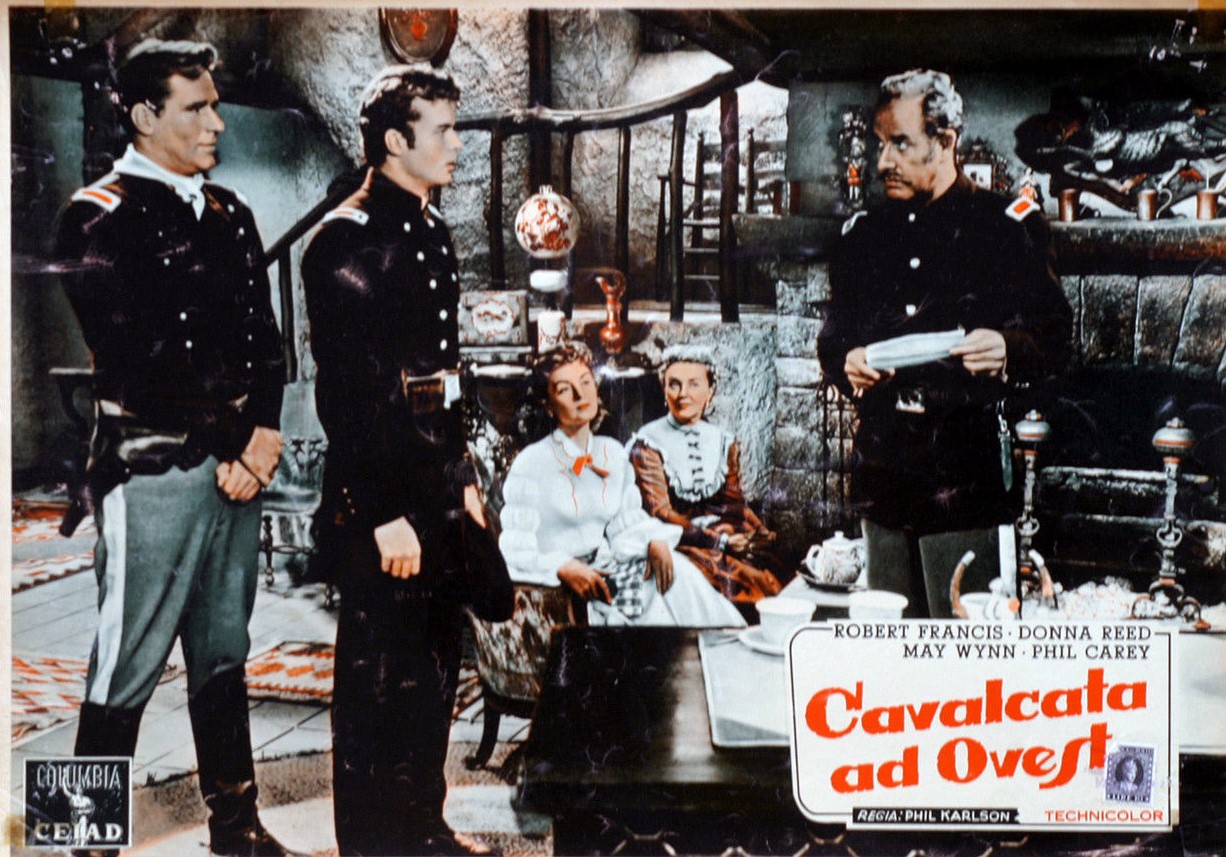
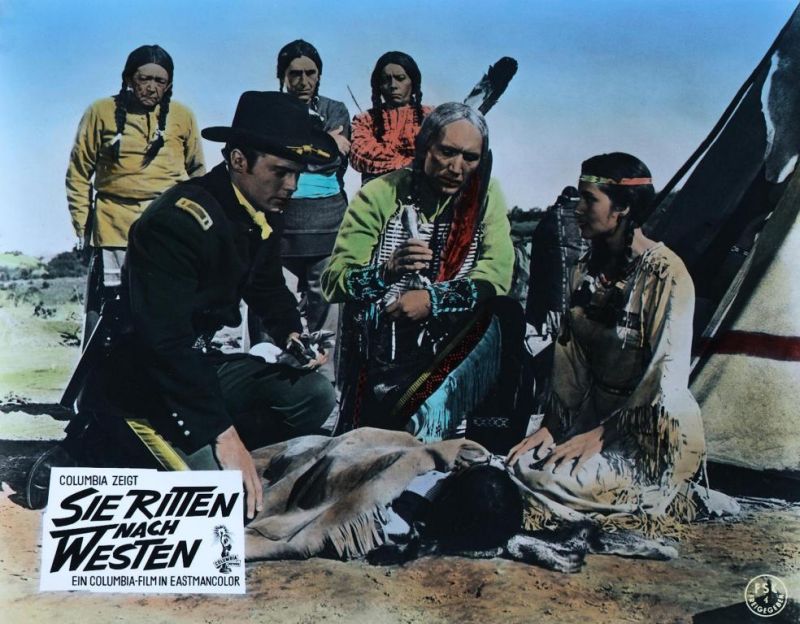
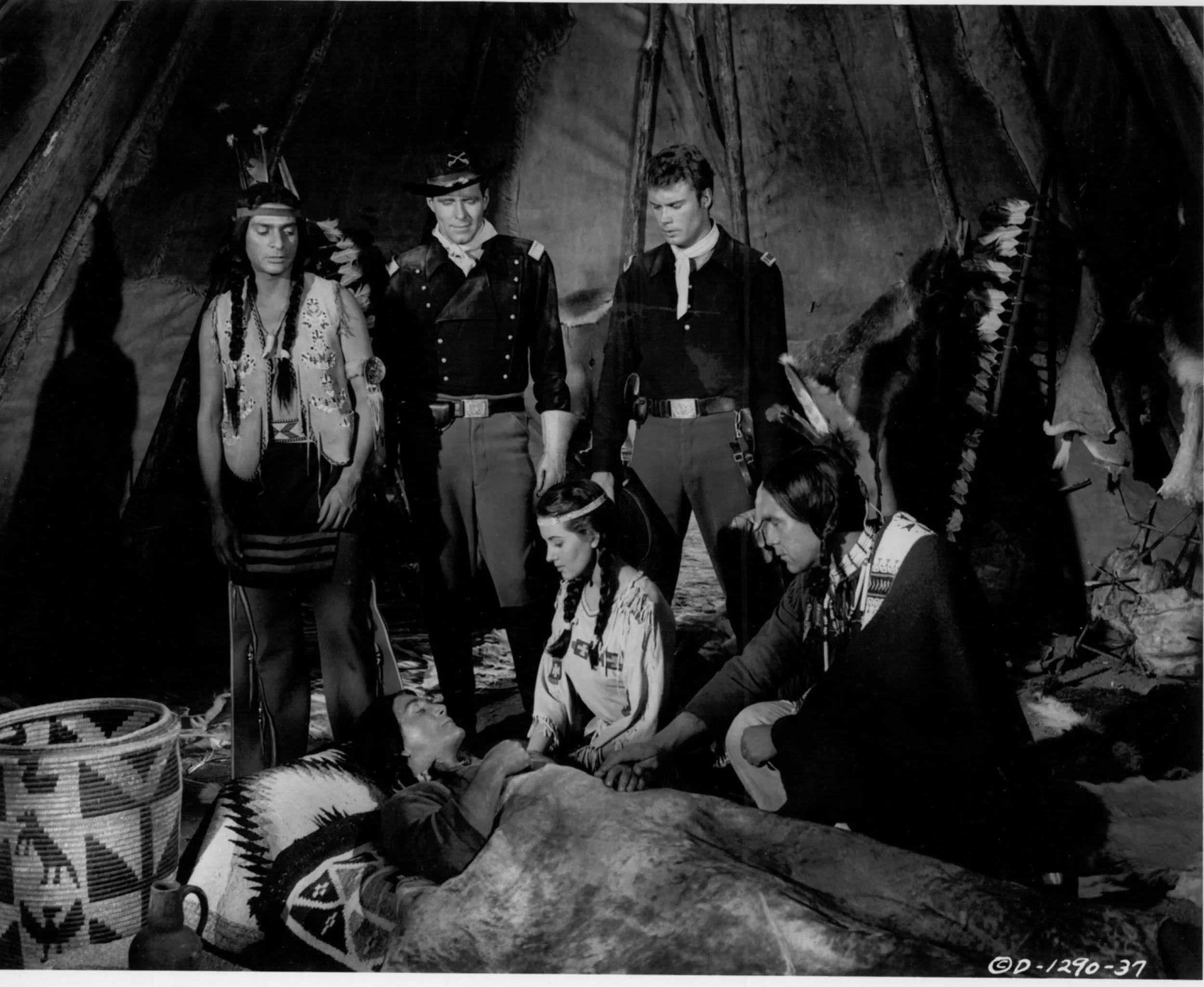
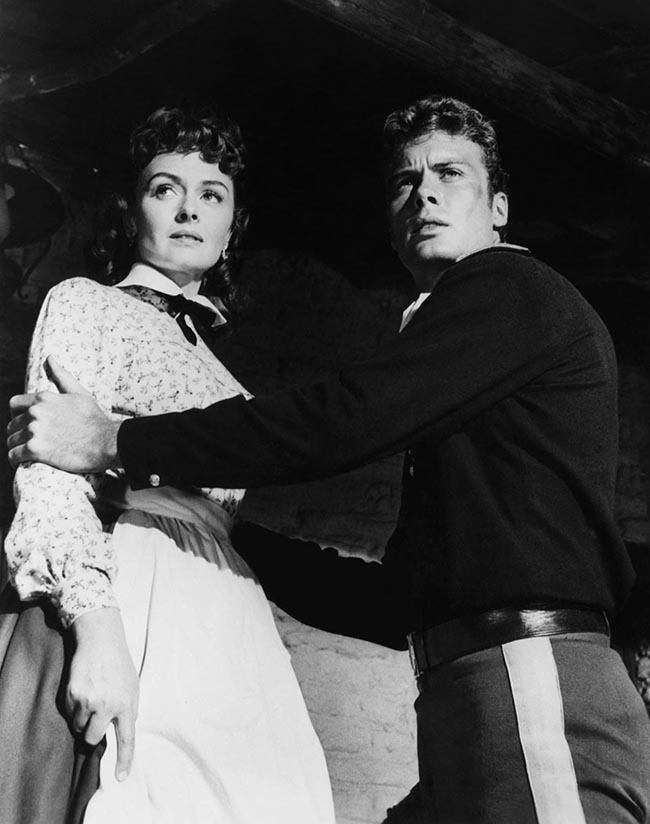
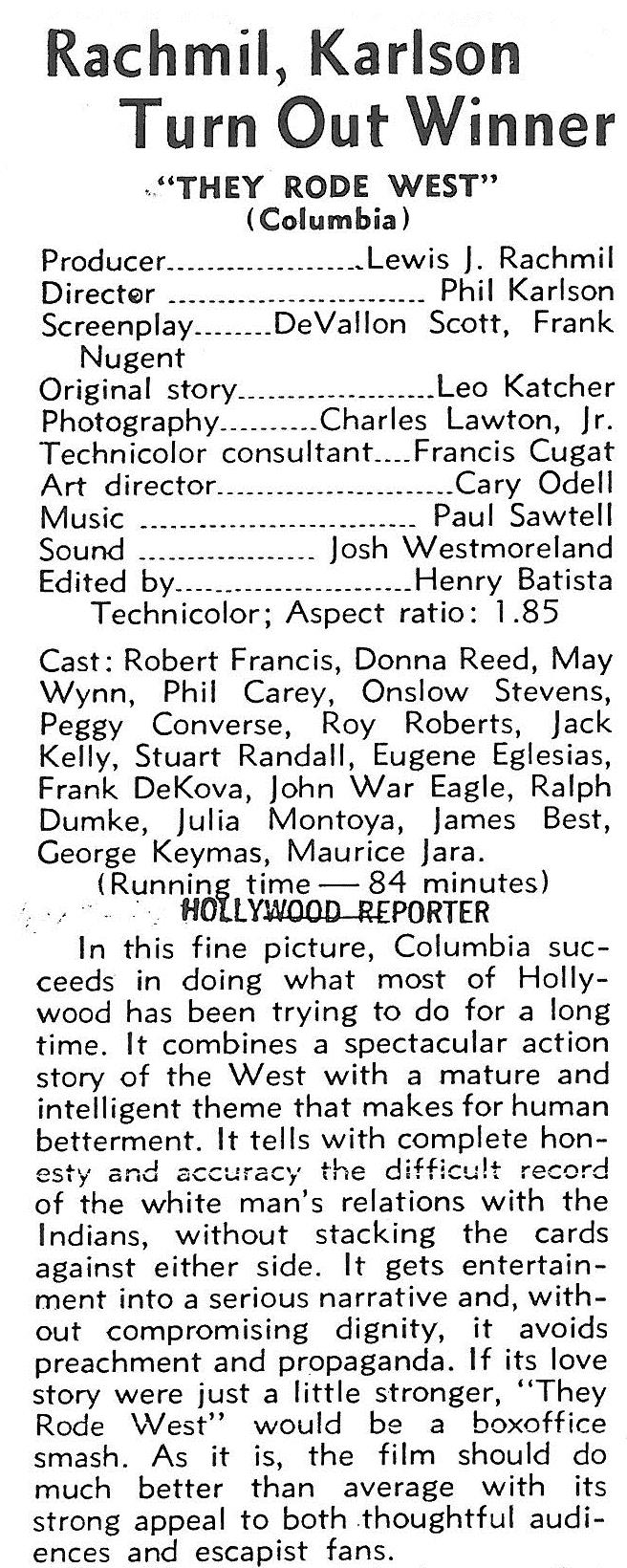
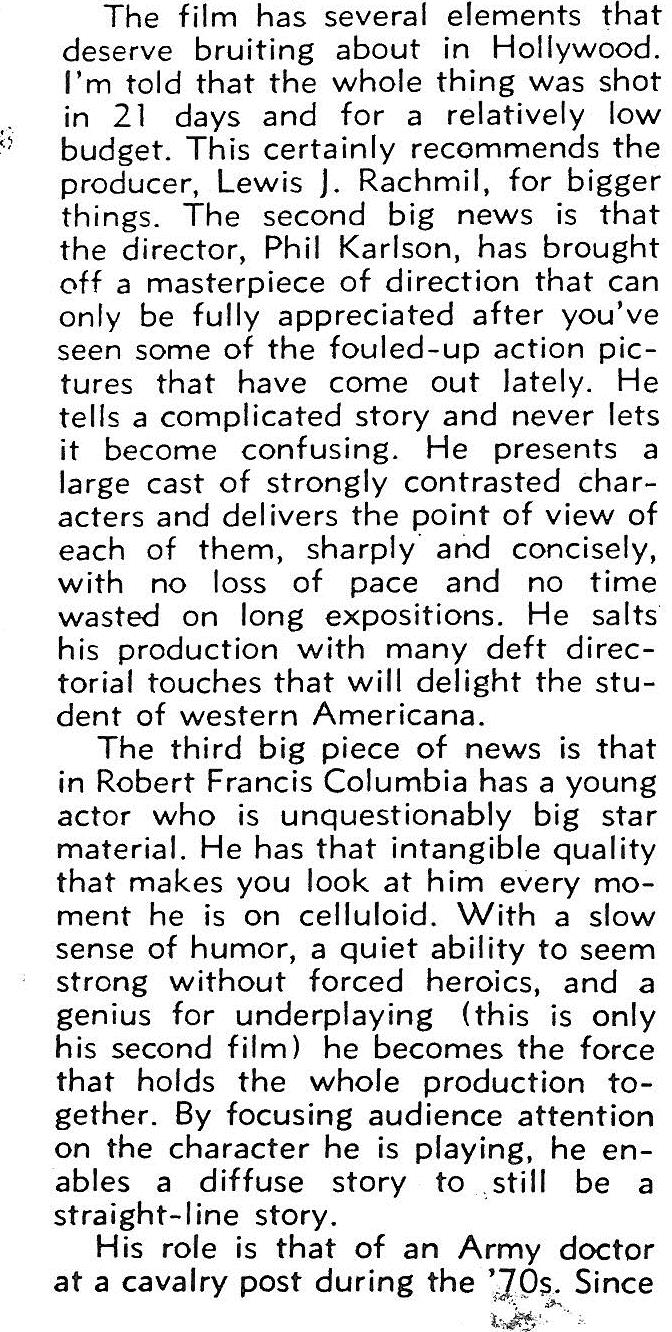
![Variety , Oct. 20, 1954 They Rode West received little critical attention during its initial release, but Variety said the film was “A cut above [the] standards of most such offerings” and praised the film’s “handsome color lensing.” The revie](https://images.squarespace-cdn.com/content/v1/5cae1b78fb18204c84880832/1554955253170-BJOH2CGUAMJWYEX7I71E/West+review+5.jpg)
